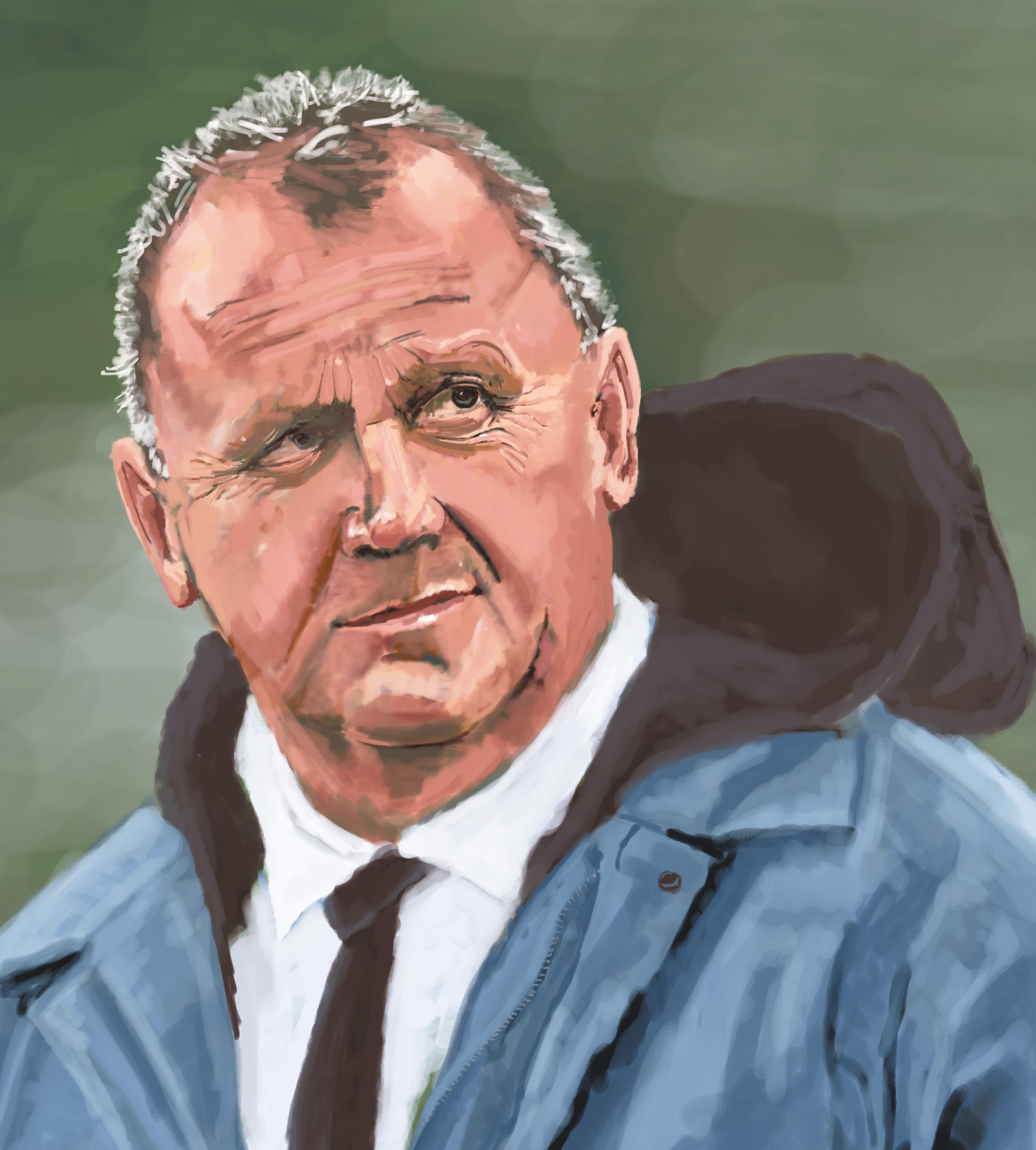
June 2023 | saltmagazine.org.nz The Spaces Between Mental Health for Young Athletes Atua, Aganuˇu and Aiga A Refreshed Rūnanga Keeping Your Head in the Game
8 Keeping Your Head in the Game
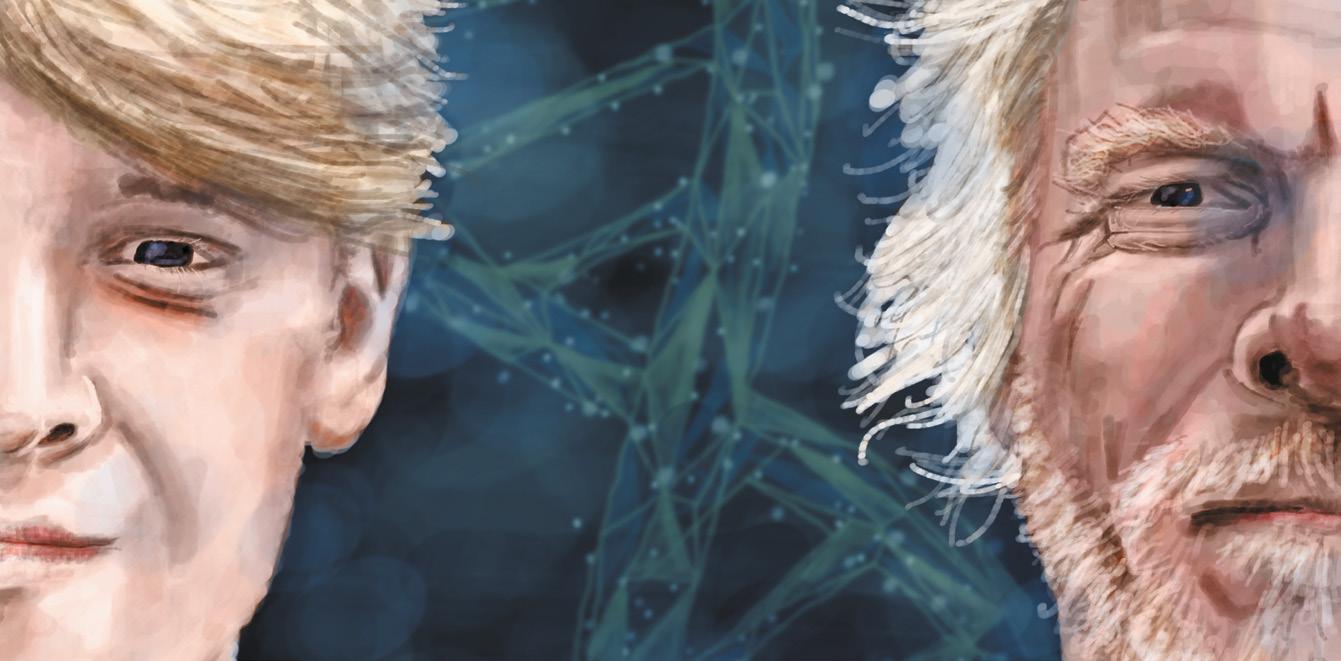
Ian Foster, the New Zealand All Blacks coach, shares on the importance of developing mental skills to cope with pressure.

12 Youth Transformation in Trentham
Limited Service Volunteers (LSV) is a six-week course for young job seekers that prepares them for employment, and builds resilience and discipline in the attendees.
18 Choose Who You Will Serve
Aaron Ratima volunteers at the Newtown Centre and attends Wellington South Corps. He shares how he turned away from violence and gangs to seek Jesus.
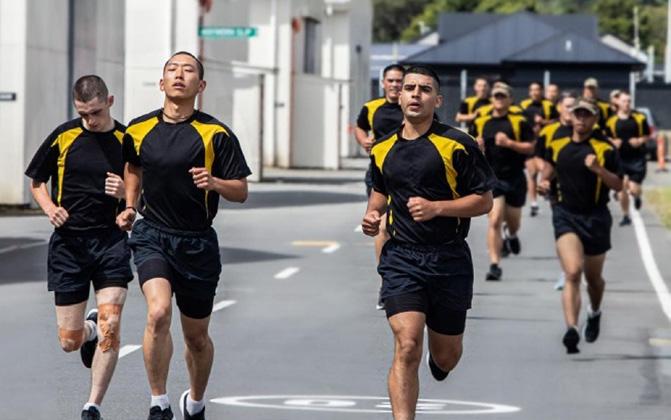
20 Culture is Clinical: Addiction Services in Samoa
Tino and Nat Senio are the leaders of The Salvation Army’s Addiction Services in the Samoa Region. They share with SALT their own journey and the transformative work they are part of in Samoa.
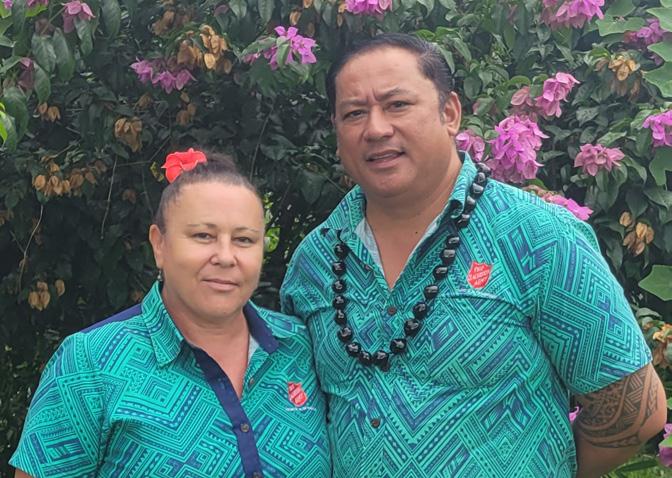
26 Lost, Found and the Spaces Between
Captain Rachel Montgomery reflects on the imagery of tracks and pathways in the Bible, and considers how Jesus can encourage and comfort us in times of disorientation along the road.
SALT Magazine
The Salvation Army New Zealand, Fiji, Tonga and Samoa Territory
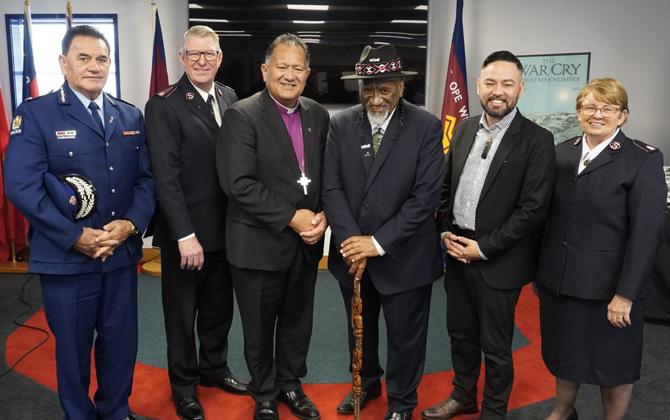
Territorial Leaders
Commissioners Julie and Mark Campbell
General
Brian Peddle
Founders
Catherine and William Booth
Editor Vivienne Hill
Graphic design Sam Coates, Nicole Gesmundo, Lauren Millington
Staff writers
Jules Badger, Hope Burmeister, Captain Rachel Montgomery, David Youngmeyer
Proof reading Colleen Marshall
Connect with us saltmagazine.org.nz
SalvationArmyNZFTS
@SalvationArmyNZ
salvationarmynzfts
Territorial Headquarters, 204 Cuba Street, PO Box 6015, Marion Square, Wellington 6141 p: (04) 384 5649
e: salt@salvationarmy.org.nz
Subscriptions mailorder@salvationarmy.org.nz

Print Management MakeReady
All Bible references from the Holy Bible, New International Version, unless otherwise stated.
Views and opinions expressed do not necessarily represent those of The Salvation Army.
Articles are copyrighted to The Salvation Army, except where indicated, and may be reprinted only with permission.

10 04 12 15 21 17 24
2816-136X
Publishing for 140 years Volume 3, Issue 2 ISSN 2816-1351 (Print) ISSN
(Online)
2 June 2023
Contents
Supporting Hearts and Minds
In offices, workplaces and families across our territory, people are having conversations about mental health. This is a positive change in our society, as years ago, when suicide statistics were on the increase in New Zealand, the thinking was that the less said the better. This has since been found to be ineffective, and support systems and conversations are now necessary in the fight against our disturbing suicide rates.
In this edition of SALT, our two feature articles speak directly to the impacts of stress, pressure and addictions on mental health.
On page 8, Ian Foster, the coach of New Zealand’s national rugby side the All Blacks, shares with us the strategies he uses to counter the pressures and demands of highperformance competition on the young men he coaches. He also gives insight into his personal support systems of family and faith, and the vital role these play in managing the outcomes of his high-profile role.
In our second feature, on page 20, Jules Badger interviews Nat and Tino Senio about the work they are establishing in Samoa to tackle the rise of addictions in Samoan society. Their passion and years of experience are proving to be effective in addressing addiction impacts. They also willingly tackle the negative aspects of tradition, but weave in the strengths of Samoan culture to treatment which is proving to be a
successful formula in the health and wellbeing outcomes of those who seek their help.
Young people are particularly vulnerable in the current climate of change and instability. A programme offered by the New Zealand Defence Force and the Ministry of Social Development, Limited Service Volunteers, is upskilling and building resilience. On page 12, we speak to Major Nigel Luscombe and Greg Hutson about their involvement in these sixweek programmes that prepare young people for the future.
Also in this edition, on page 26, Captain Rachel Montgomery dives into the topic of disorientation. She takes us down the path of being lost, then found and the places in between. She reorients us to Christ and reassures us that no matter what we are experiencing, we can trust Jesus to journey with us in seasons of disorientation.
Finally, please check out the testimony of Aaron Ratima on page 18, as he shares his struggles across decades of trauma and coming to a place of salvation and freedom.
Vivienne Hill Editor
AUGUSTINE
A Christian is: a mind through which Christ thinks, a heart through which Christ loves, a voice through which Christ speaks, and a hand through which Christ helps.
ST
saltmagazine.org.nz 3
WORD OF THE MONTH Rāmere
(Te reo
Māori, noun)
Friday

Source: maoridictionary.co.nz
SALVATION ARMY PRAYER
Please keep those impacted by Cyclone Gabrielle in your prayers. We continue to pray for the Kingdom of Tonga rebuilding after the eruption; Business Administration Section; Cambridge Corps; Candidates Department; Central Division; Central Taranaki Corps; Children’s Mission; Christchurch City Corps; The Salvation Army in Mexico; and The Salvation Army in the Middle East.
What’s On?
24–25
INTERNATIONAL PRAYER
• Turkey and Syria—Continue to pray for these countries as families are displaced and can’t return to their homes due to earthquake damage. Pray for families to find shelter and for rebuilding.
• Mauritania—Pray for religious freedom and acceptance of new believers by families; encouragement and strength for those imprisoned for their faith.
• Uzbekistan—Pray for secret Christians to not be afraid and to call out to God for help; for church leaders who face persecution for their faith.
• Colombia—Pray for protection of Christians who live in areas with armed criminal groups and for gangs to turn from sin to discover the love of God.

• Vietnam—Praise God for the growth of the church in ethnic minority groups, and pray for the protection of women against trafficking.

Prayer Focus: Afghanistan
Nearly 20 million people are facing severe hunger in Afghanistan, with six million just a step from famine, according to the United Nations. Levels of moderate acute malnutrition are the highest ever recorded in the country. With just over five percent of required funding for the 2023 humanitarian response plan received, Afghanistan faces a largescale humanitarian catastrophe. Since the collapse of the Afghan Government in August 2021 and its replacement by the Taliban de facto authorities, Afghanistan has become the most repressive country in the world for women and girls. Numerous and increasingly severe restrictions have limited their ability to study, work, move freely and travel. For example, Afghan women are banned from working for NGOs and the UN. Secondary schools are closed to Afghan girls, while Afghan women are banned from higher education.
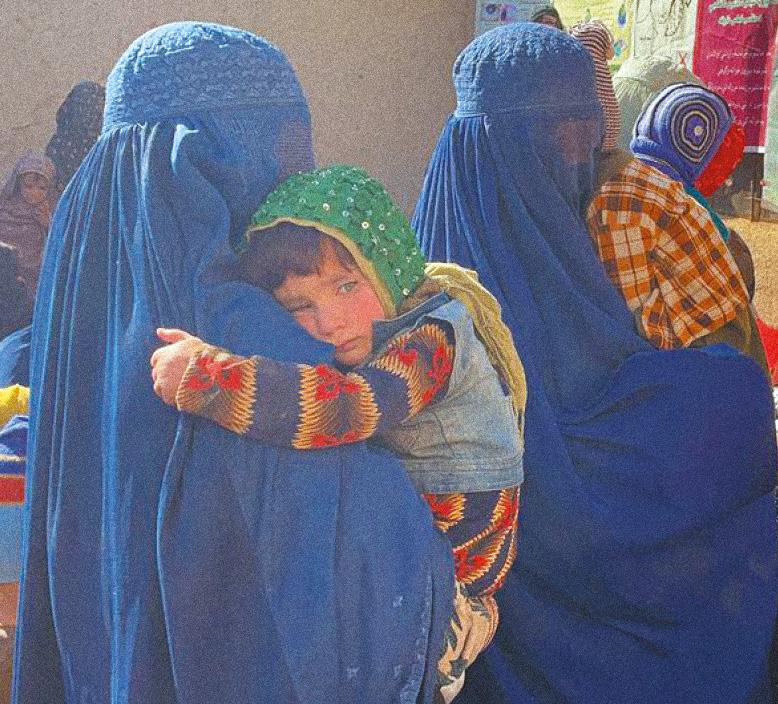
Division Children’s Regional Camp
Fiji
June
Conference
Upper Hutt
June–2 July
of
the Date 9–10 September Invercargill Corps Anniversary 3–5 November Kilbirnie Corps Anniversary 18–19 November Alexandra Corps Anniversary 15–17 December Fiji Division 50th Anniversary Check out our full event calendar at saltmagazine/events 4 June 2023
More
|
30
A weekend-long conference with a series of speakers for development
youth leaders in The Salvation Army. Register at moreconference.co.nz Save
Chicken Pie with Herby Cobbler Topping

This is a great recipe for making a little bit of leftover chicken go a long way, and a little more or less won’t make much difference. If you are cooking for one or two, bake it in ramekins and freeze the extras for another time.
Ingredients
Filling
• 1 Tbsp butter or oil
• 50g chopped bacon or ham
• 50g sliced mushrooms
• 1½ cups cooked chicken, shredded (one whole leg or a small breast is sufficient)
• 1–2 carrots, cooked and sliced
• 1 kumara, cooked and cubed
Method
• 500ml chicken stock
• 1 Tbsp cornflour mixed with 1 Tbsp cold water
Topping
• 150g self-raising flour
• 75g butter or margarine (dairy free is fine)
• A pinch of mixed herbs
• Cold water to mix
INTRIGUING INDEX Accidental Discoveries
1 The tea bag
Legend has it that American tea merchant Thomas Sullivan put different tea in silk pouches that he sent to Europe so they wouldn’t get mixed up. When they arrived, the receivers of the tea accidentally put the tea with the packaging in boiling water … and so the tea bag was born.
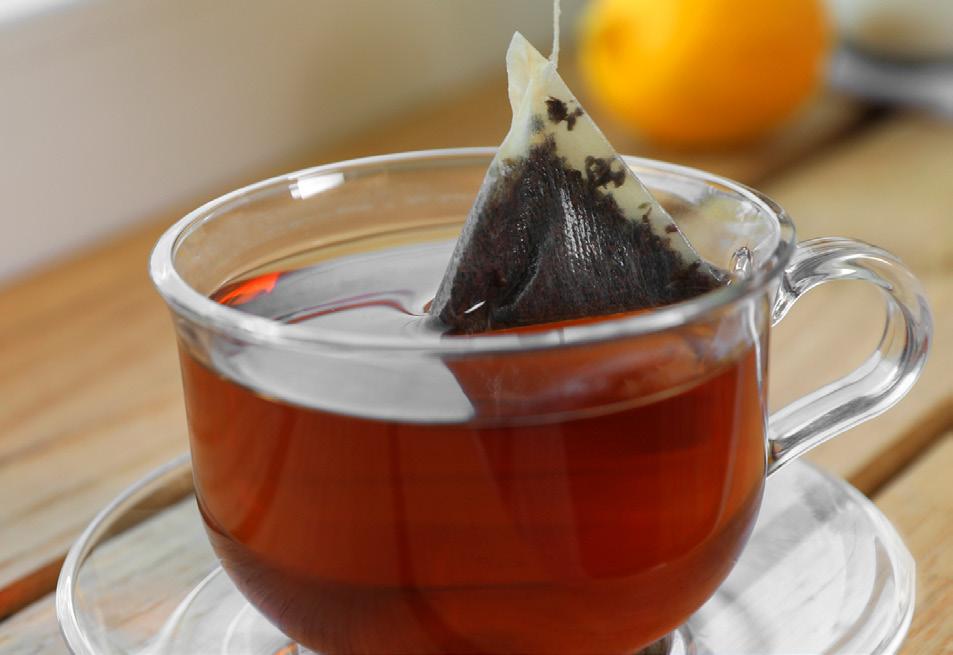
2 Post-it Notes
Preheat oven to 200°C. Heat butter or oil in a frying pan and gently cook the bacon and mushrooms till soft. Add the cooked chicken, vegetables and stock and bring up to simmering point. Add the cornflour slurry and stir into chicken mixture, simmer, stirring until thickened. Pour the mixture into an ovenproof dish or ramekins.
To make the topping, place the flour, herbs and butter in a bowl or processor. Process in small bursts until mixture looks like breadcrumbs, or rub in fat with your fingertips. Add just enough cold water to form a soft dough.
Roll on a floured bench and cut to fit your dish or ramekins. Cover chicken mixture with dough and score a diagonal pattern on top with a knife. Bake in the preheated oven for 20–25 minutes or until risen and golden.
Tip: If you are starting with uncooked chicken, poach the chicken in water with a bay leaf, a few peppercorns and some parsley or celery stalks until the chicken is cooked through. Strain the seasonings out of the liquid and skim any excess fat off the top. Use your freshly made stock instead of stock powder.
Source: Sophie Grey | destitutegourmet.com
Chemist Spencer Silver was assigned to create a new adhesive that was stronger than what was already available. However, he ended up making the opposite: a blend that stuck but was easily removed. Scientist Art Fry partnered with Silver to create the Post-it Note with this adhesive on the back.
3 Cornflakes
The well-known breakfast cereal came about when Will Keith Kellogg and his brother Dr John Harvey Kellogg accidentally flaked wheat berries while trying to make granola.
4 Chewing gum
Thomas Adams Senior was actually experimenting with chicle, the sap from a South American tree, to use as an alternative to rubber. However, after failed efforts, he popped a piece in his mouth and actually liked it. Thomas created the first-ever chewing gum.
saltmagazine.org.nz 5
QUICK QUIZ
1 What is the name of the crown that sits atop the shield in the New Zealand Coat of Arms?
2 How many elements are in the periodic table?
3 What company was initially known as ‘Blue Ribbon Sports’ at its founding in 1964?
4 What country has won the most FIFA World Cups?
5 What is the national sport of Japan?
Answers page 32
Photo Submission
Do you have a photo you’re keen to have featured in SALT ?
Send it to us at saltmagazine@ salvationarmy.org.nz
Do You Know This Person?
If you recognise the person in this photo, we’d love to hear from you.
Email: archives@salvationarmy.org.nz
Letter to the Editor
Letter received from one of our readers. When my mother’s family emigrated from Britain to Auckland, New Zealand, about 1920, her eldest brother remained in Britain.
Uncle Charles Wood had served in the British Army in WWI in the trenches of France. During the period of his service, which he rarely talked about, he witnessed Salvation Army chaplains ministering to the men under fire. Seeing the chaplains in the trenches impressed him, so when the war ended, he joined The Salvation Army and subsequently undertook officer training. Uncle Charles, with his wife Rose, served for the rest of his life.
The family remained loyal to the Anglican Church, except for one brother who took up a Methodist Church affiliation in New Zealand.
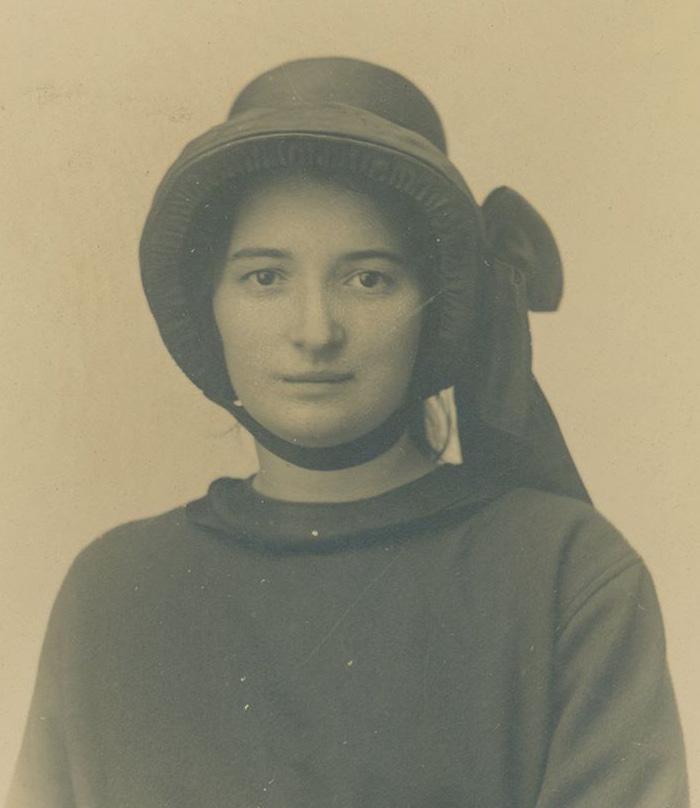
Uncle Charles and Aunt Rose progressed through the ranks, eventually becoming brigadiers.
Uncle Charles did make one holiday visit to New Zealand in later life, and that was the only time I met him. I was a teenager.
I know very little of his officership service except that he spent some years in South Africa, and upon return to Britain was involved in the people tracing service when he retired.
One small anecdote my mother talked about was when she was five years old and at school, the news came that the war had ended, but the pupils were not released early to go home. When the school day ended, Mother ran home as fast as she could. She turned into the street and saw her mother at the gate of their home at some distance. She screamed at the top of her voice, ‘Is our Charlie home yet?’
This testimony may be of interest and some benefit to someone who reads it.
Yours faithfully,
Christian P Berg
A hero is an ordinary individual who finds the strength to persevere and endure in spite of overwhelming obstacles.
CHRISTOPHER REEVE
6 June 2023
Lauren Daigle
Pop | Lauren Daigle | Listen on Spotify, Apple Music, Amazon Music

Lauren Daigle’s latest album showcases her undeniable talent and unique vocal style, which has earned her a loyal fan base over the years. With a mix of uplifting and introspective tracks, this album offers something for everyone. The album features a range of genres including pop, gospel and soul which really showcases Lauren’s powerful and soulful voice. The lyrics are thoughtprovoking and inspiring, however, there was a noticeable move away from only faith-based songs which did feel a little jarring at times. Overall, the new album is a solid addition to her discography, showcasing her vocal prowess and ability to connect with listeners through her music.
(Reviewed by Julia Martino)
What to Say When You Don’t Know What to Say
Picture Book | Davina Bell and Hilary Jean Tapper | Lothian Children’s Book
This heart-warming book gently depicts children interacting with one another at home, preschool and in the playground as they navigate life’s little moments and big emotions. I particularly love that the reader can follow each child’s individual journey—making a mistake, moving house, losing a pet—as well as observe how their lives intersect. Each page features a bright, emotive illustration of a day-to-day scenario and a suggested verbal response, such as: ‘You can cry. I don’t mind’. Other prompts include ‘Want to join in?’; ‘I like you just how you are’; and, ‘I’m feeling a bit shy’. Suitable for ages 3 to 100.

(Reviewed by Lauren Millington)
Coffee Time Theology

Faith Reflection, Theology | Lieutenants Grace and Stu Duxfield | Available wherever you listen to podcasts.
Far from sentry-type doctrinal gatekeeping, Coffee Time Theology offers an explorative and expansive approach to a variety of twenty-first century faith and practice topics. With provocative titles like ‘Tension: What if the neighbours suck?’ and ‘Sanctuary: Places and people (and birds)’, the content is simultaneously smart, funny, mature, informative, thought-provoking and reflective. With delightfully bite-sized 20 minute episodes, Coffee Time Theology is a fantastic introduction for those still cutting their teeth on theology, while also providing fresh enlightenment for those much longer in the theological tooth. PS. Just like a Marvel film, make sure you listen right to the very end of the episode for the out-takes and, inevitably, Grace’s gorgeous giggle. (Reviewed by Jules Badger)
True Heroes are Kiwi
Helping Kiwi
Each year more than 150,000 people come to The Salvation Army for support. For just $35 a month, you can help provide food parcels, transitional housing, life skills, parenting programmes and budgeting advice, along with other wraparound support. Your monthly gift brings hope to whānau in difficult circumstances.
If you would like to become a regular donor, please contact Gabrielle at gabrielle.martell-turner@salvationarmy.org.nz
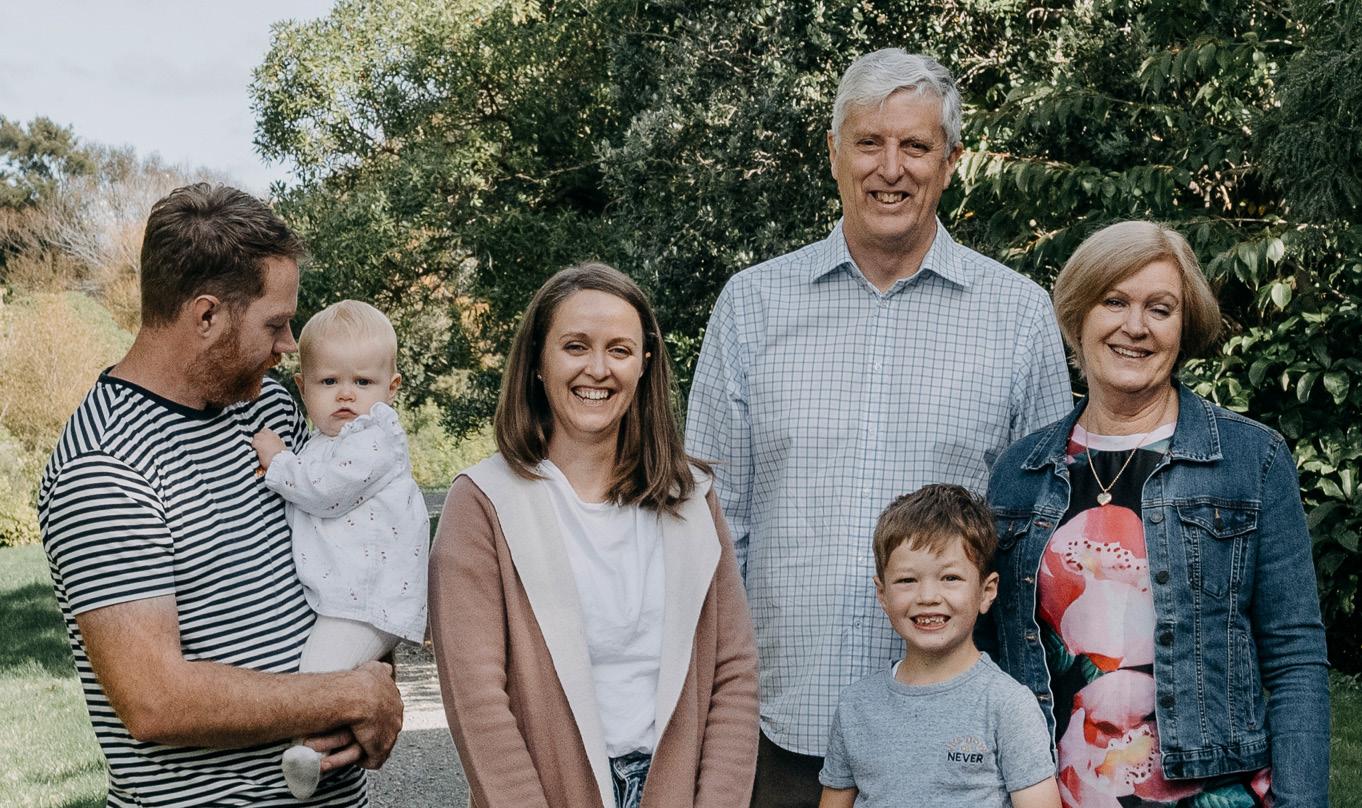
saltmagazine.org.nz 7
Keeping Your Head in the Game
SALT was privileged to sit down with Ian Foster, coach for the New Zealand All Blacks, to get his take on the importance of developing mental skills to cope with pressure, and how he helps young athletes mitigate the negative impact of social media. He also touches on the vital role that family and faith play as protective factors in his own mental wellbeing.
WORDS Jules Badger
or the past decade, and even more acutely during the pandemic, conversations about mental health have become increasingly easier. Far from the taboo topic it once was, more and more Kiwi are opening up about their struggles and seeking help. While expedient access to services continues to be a problem in Aotearoa New Zealand, the messaging is clear—it’s okay not to be okay. Workplaces, schools and tertiary providers, churches, as well as various community groups, are all working hard to create environments that place a high priority on mental wellbeing. The professional sports industry is not just getting on board but, in some spaces, making significant strides forward.
That said, the statistics are still shocking—especially for New Zealand men. Workplace wellbeing and resilience training specialists Umbrella explain that ‘mental health is a topic that many men are reluctant to talk about. One indicator of our reluctance is the simple fact that while New Zealand males report lower rates of depression and anxiety than New Zealand females, men accounted for roughly three quarters (72 percent) of New Zealand suicides in 2020.’
Fostering high performance
Traditional beliefs about masculinity—like being tough and unwilling to show weakness—have historically
dominated New Zealand culture and influenced behaviour with devasting results. However, these attitudes are consistently being challenged in the twenty-first century. In 2010, rugby star Sir John Kirwan published a groundbreaking memoir about his battle with mental illness, All Blacks Don’t Cry the book title itself is a poignant social commentary calling out toxic attitudes about both masculinity and mental health. All Blacks coach Ian Foster affirms that there is absolutely no room for such corrosive attitudes within the All Blacks camp of 2023. In fact, for athletes and coaches alike to keep their head in the game, the complete opposite is true.
‘We have shifted a lot over the last decade to understanding that establishing a culture and environment that allows for vulnerability goes hand in hand with high performance. Knowing what athletes need help with and working with them encourages them to be better people, which makes them better rugby players,’ explains Ian. ‘There was a time when how we were coached and organised was very much about here’s the role and the code of behaviour, but within that there wasn’t room or opportunity given to show any signs of weakness.’
Ian knows this from experience, having played top level rugby himself for Waikato, and then the Chiefs as Super Rugby took off in the mid-90s. Successfully
8 June 2023
transitioning to coaching in 2002, Ian’s playbook includes eight years with the Chiefs and three years as co-coach of the Junior All Blacks. In 2012, he joined the All Blacks coaching team, becoming head coach in 2019. With the 2023 World Cup looming large, Ian knows all about pressure and how to manage it. But it’s the impact that pressure has on the young athletes in his charge that drives his coaching team to deliver on a culture that supports mental wellbeing.

Fostering counter-pressure
Speaking plainly about the pressure of the All Blacks environment, Ian uses the analogy of an egg. We all know how fragile an egg is and how easily it can crack when threatened by external pressure. But the All Blacks coaching team is constantly working with young athletes to build internal counter-pressure to minimise that threat.
‘Most people understand the concept of external pressure—the media and the public expectations of winning—but there are also some powerful pressures that the players put on themselves. For most athletes they have dreamed of being an All Black since they were a kid. They make the team and then boom, there’s the pressure of their own expectations, and that of
family and friends who they want to make proud. What we have learnt is that you must match that external pressure—exceed it if possible—with positive internal pressure so that players don’t crack,’ says Ian.
That internal pressure obviously includes high expectations of behaviour and standards as well as individual player’s ownership of and commitment to a strict training regime.
‘If we don’t introduce the essential ingredient of vulnerability into the mix within the team camp, then the mental burden of performance and expectation can be overpowering,’ Ian emphasises. ‘Creating an environment where athletes feel safe to share what’s going on is vital. It’s not a big counselling or sob session, but it’s having intentionality around where a player is at and what they need help with. And that hopefully becomes part of the everyday language— that’s what we are striving for.’
saltmagazine.org.nz 9
‘My faith gives me the calmness to approach some of the difficult situations I find myself in.’
Ian explains that the team leans heavily into the phrase ‘mental skills’, coined by All Blacks sports psychologist Gilbert Enoka. ‘It’s about helping players to be authentic in everything they do, and teaching a set of mental skills that support that. If a player is struggling, the first conversation will be with Gilbert, and from there we develop a strategy with the athlete.’ Obviously Ian holds ‘positional power’ as the head coach. ‘I have something players want, which is selection. So we work hard to create an environment that says okay I have this power and my role is to decide if you get to play, but I can’t afford to have you spending all day worrying about what I’m going to decide. That’s something you simply cannot control. So that’s a key mental skill, understanding what you can and can’t
control. We help athletes work out that what they can control is their performance, so we work hard in that training space.’
Fostering self-worth and value
What a player can and can’t control spills over into social media—a reality for many of us today. Ian is quick to affirm that there are some positive aspects to social media, but he also has some sage advice for combating the negative. ‘The answers to gaining an understanding of who we are and how we determine our own value and self-worth are never going to be found on social media,’ he says.
‘We advise athletes to be careful about what they expose themselves to on social media, discussing with them what drives that need to read people’s comments. If they are needing that to build self-worth then there are some more important underlying issues we want to work on with a player.’
It’s senior players who contribute real value to this work with young and/or new players—men who know the pitfalls personally and how crucial it is to be disciplined around social media use. Players are encouraged to manage the amount of time they spend online. Ian wisely comments, ‘the minute you find yourself feeling better or worse based on random comments from people you don’t know personally, then you need to come back and re-centre yourself around who you are, what’s important to you and what you want to achieve; and make sure you’re talking with people who really matter to you and who can affirm those things.’
Ian is not immune to external pressures as head coach but benefits as much as the players from the supportive culture pushing back inside the All Blacks camp.

‘If we can’t get that support right from within the camp, we’re pretty stuffed,’ he says. The Irish series in 2022 was a particularly hard time, and it was senior player Ardie Savea who reached out to Ian, demonstrating how embedded the culture of support really is.
‘Ardie rang me up and asked, “How are you going Fos?”
‘And I said, “I’m going good.”
10 June 2023
Below: Ian Foster with Tupou Vaa’i (left) and Sam Whitelock (right) after winning the Freedom Cup against South Africa.
‘But then he said, “Nah nah, how are you really going?” ‘And I was able to say, “She’s a bit tough Ardie”. ‘And he said, “Well, we’re all in this together and you’re our boss and you’re where you need to be, and we believe that so let’s just get on and do it”. So I’ve got people around me willing to reach out and share and walk the journey when it’s tough.’
Foster family, faith and footie
One of those people is Ian’s wife Leigh, as well as his extended family which he describes as ‘massively supportive’ and the people who ‘willingly ride the ups and downs’ with him and help Ian keep his head in the game.
‘Leigh understands the complexities of the job and the pressures, and she’s great if I’m away on tour because I can call her and vent. Her response is usually, “Oh well that’s part of the job so stop sulking and get on with it”. Sometimes the help I need isn’t soft and fuzzy but direct and pragmatic. But on the flip side, she’s a great listener when that’s what I need. This job would be very hard to do without a rock-solid family around you.’
Ian’s Christian faith also plays a significant role in his own wellbeing, helping him handle criticism and pressure.
‘My faith gives me the calmness to approach some of the difficult situations I find myself in. It doesn’t give me an advantage over anyone else in my business, but it helps me deal with it all. My faith helps me
take the criticism in a constructive way. Some of that feedback is right, from a rugby sense, so I want to hear it. But I don’t want it to dent me as a person. My own confidence in who I am enables me to be relatively consistent with my team, so hopefully they don’t see someone fluctuate up and down based on results or external pressure. For me, having a clear sense that I am grounded in something is essential because then it doesn’t matter what’s out there that hits me, I can come back to who I am and what I believe in.’
Ian has observed this in others within the All Blacks camp. ‘We’ve had Muslims in our team, and other Christians, as well as people who probably don’t profess to have a faith at all but have some outstanding family values. Players who have those strong bases are the ones who have the best foundation to deal with what’s going to hit them as an All Black.’

Ultimately, it’s Ian’s love of the sport that keeps his head firmly in the game. ‘What I love about sport is that it builds community. It’s a mechanism for people to come together in a space where all the titles they have in life get put to the side. It doesn’t matter if you are a bank manager or a farmer because on the field you’re a sportsperson first—part of the team—trying to achieve something positive together. And that’s what I love most.’
For more from SALT ’s conversation with Ian Foster, head online to saltmagazine.org.nz
‘…while New Zealand males report lower rates of depression and anxiety than New Zealand females, men accounted for roughly three quarters of New Zealand suicides in 2020.’
saltmagazine.org.nz 11
Military Course Transforming Young People
Limited Service Volunteers (LSV) is a six-week course funded by the Ministry of Social Development (MSD) and run by the New Zealand Defence Force (NZDF) for young job seekers aged between 18 and 24. Salvationist Major Nigel Luscombe and (military) Corporal Greg Hutson speak about the positive outcomes they are seeing as they support the participants of the course. Hope Burmeister reports.
Not all young people receive the same opportunities to learn valuable skills like discipline and responsibility, or to find suitable employment after high school. But attendees of LSV are getting the opportunity to grow and learn through this fully funded course.
Corporal Greg Hutson, section commander, has been working with the Youth Development Unit for 13 years, working in the LSV programme at Trentham since 2010.
The programme takes on young people who have been unemployed for some time. Four or five courses are run each year, depending on the camp. The course has strict military elements with requirements to hand in phones and money, wear a uniform, wake up at 5.30am and participate in drills and marching. However, participants are also prepared for employment, which includes CV writing, interview techniques and how to dress for job interviews. This all prepares and shapes them for the real world.

Getting on with the programme
The course is over six weeks with varying activities. Week one is about creating a team foundation when the instructors facilitate the group of trainees to work together in teams. During week two they camp
outside Trentham Military Camp and then return to Trentham for week three. Week four is titled ‘The Longest Day’, where participants are up at 4.30am to go on an eight kilometre pack march and week five has a 50 kilometre tramp around the Remutaka Cycle Trail. In the final weeks the participants prepare for the graduation march parade, held at the end of the course.
The physical changes in the young people from the start to the end of the course are visible. ‘On the last week of course,’ says Greg, ‘we took a photo of them and physically their skin had cleared up, they lost a bit of weight and their eyes were brighter. Everything’s changed about them, their motivation, everything.’
They also have an Employers Expo in week four, which is run by MSD. The trainees meet with businesses— Fulton Hogan, McDonald’s and New Zealand Police—for potential employment after the programme. Many young people who have completed the course go on to work in these industries and services.
For Greg, the biggest success stories are the trainees who end up joining the military and become trainers in the LSV course like himself.
Since he’s been part of the programme for over a decade, he’s seen changes in the needs of young people over the years. For example, the rise of mental health issues and ‘post-Covid youth’ who are not used to interacting with others.
12 June 2023
A social worker is part of the programme, there to help support the trainees who may be going through difficult times in their personal lives. The soldiers are also trained youth workers. ‘This is a youth development unit,’ Greg emphasises. ‘We’re not here to train soldiers. We’re here to train youth.’
Ministry and encouragement
Last year, Major Nigel Luscombe, who is both a Salvation Army officer and a military chaplain, had the opportunity to join with and support the young people in an LSV programme held at Trentham. He participated in different activities with the trainees, had opportunities to speak to some of them one-on-one about how they were feeling and even had a chance to talk about God and give out Bibles.
There were also times when he helped encourage trainees to keep going; for example, helping one person who was terrified to walk across a swing bridge. ‘She was just so happy that she had been able to conquer one of her fears. And so just being alongside her, encouraging her, was good,’ he says.
Similar to Greg, Nigel says the changes in the young people from start to end of the course were second to none.
‘You just saw their confidence grow. They went from these young people whose eyes were often down, heads down, to young people whose heads were up. They were proud of what they achieved.’
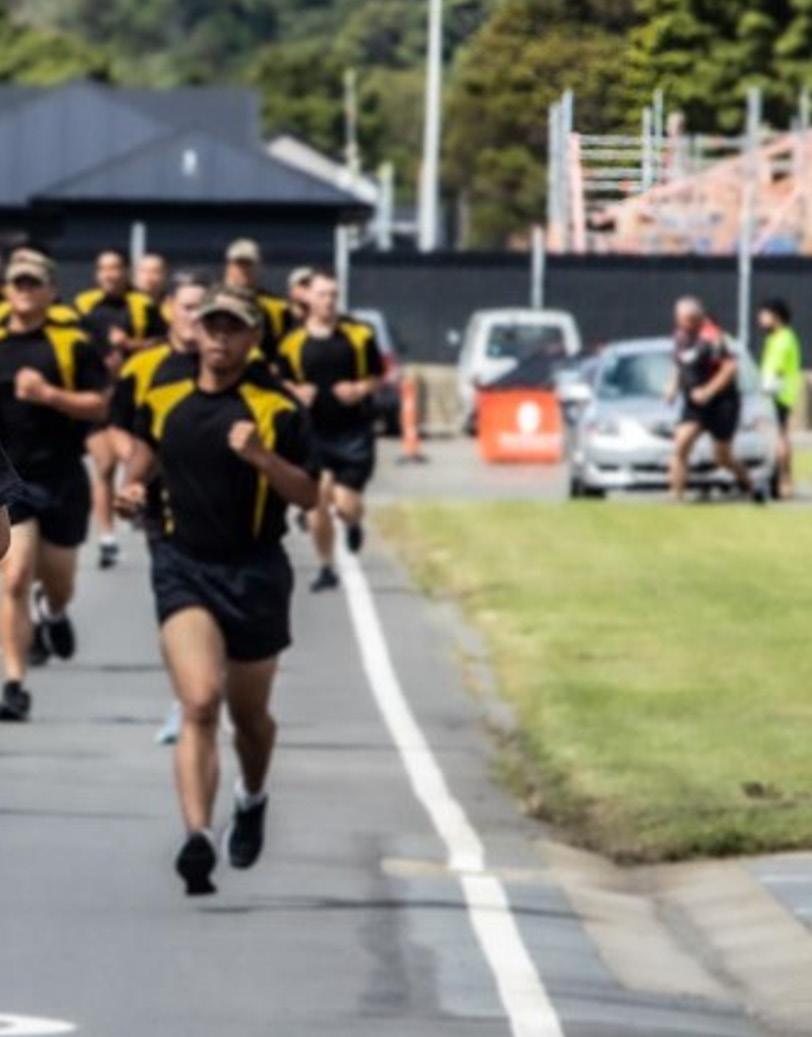
He believes the course taught the young people discipline, but not the kind of discipline many of the trainees may have previously been used to. ‘For the first time in their lives … it’s not just discipline

with a stick, it’s discipline with encouragement,’ he says.
Nigel hopes more people will learn about this programme and realise how valuable the opportunity is for young people to grow—entering the course as teenagers and leaving as adults.
For more information on the Limited Service Volunteers six week course, visit tinyurl.com/LSVCourse
The physical changes in the young people from the start to the end of the course are visible.
saltmagazine.org.nz 13
The course has strict military elements with requirements to hand in phones and money, wear a uniform, wake up at 5.30am and participate in drills and marching.
God in the Past, Present and Future
We look back and thank God. This year is a year of celebration: 140 years of The Salvation Army in New Zealand and 50 years in Fiji. God is using and working through the Army today, as he has over the last 140 years.
We look forward and trust God. Jesus said, ‘I have come that they may have life, and have it to the full’ (John 10:10b). We want to see people living free from material hardship, living healthy and resilient lives and engaged in healthy relationships. In all of this, we long to see people connecting to the great transforming love that we find in Jesus. What a vision we have before us: a vision of the many thousands we encounter finding connection and belonging; of communities being re-formed as people discover hope, faith, freedom and abundant life.
We look around and serve God. We must keep adapting to how we outwork God’s mission. We are a movement, not a static, unchanging entity. We need to be adventurous, stepping out in faith and trying new ways to engage our community—to care for people, transform lives and reform society. Our faith communities are a place of acceptance where all are welcome as family members in Christ and supported in a holistic way— physically, emotionally and spiritually.
We look within and invite God. I encourage you to look within yourself and invite God to speak to you about where he personally wants you to go and what he wants you to do to serve him faithfully as his disciple, while utilising your gifts, talents and experiences; to go into your community and reflect and represent Jesus to everyone. Will you ask God where you fit into his mission for Te Ope Whakaora, The Army that Brings Life?
We look back and thank God; we look forward and trust God; we look around and serve God where he has placed us in community; and, we look within and invite God.
Colonel Gerry Walker Chief Secretary
John 10:10–11
The thief comes only to steal and kill and destroy; I have come that they may have life, and have it to the full. I am the good shepherd. The good shepherd lays down his life for the sheep. (NIV)
Heoi anō tā te tāhae e haere mai ai, he tāhae, he patu, he whakamōtī hoki. I haere mai ahau kia whiwhi ai rātou ki te ora, inā, tōna nui noa atu. Ko ahau te hēpara pai, he hēpara pai, ka tuku i a ia anō kia mate mō ngā hipi. (PT)
Sa sega ni lako wale mai na daubutako, me butako ga, ka ravuravu, ka vakarusa: au sa lako mai me rawa vei ira na bula, ia me rawa vakalevu sara. Oi au nai vakatawa vinaka: sa solia na nona bula nai vakatawa vinaka e na vukudra na sipi. (FOV)
Chor to khali chori kare, jaan se maare aur nuksaan kare aay hei. Ham to aaya hei ki u sab ke jeewan mile, aur puura jeewan mile. Hamahi achchha shepaḍ hei, jon aapan bheṛa ke waaste jaan bhi de sake hei. (FRHNT)
Tala‘ehai ‘oku ha‘u ‘a e kaiha‘a ki ha me‘a, ka ke kaiha‘a pe, mo tamate‘i, mo maumau: ko au kuo u ha‘u koe‘uhi ke nau ma‘u mo‘ui, pea ke nau ma‘u ‘o lahi ‘aupito. Ko au ko e Tauhi Lelei. Ko e anga ‘o e tauhi lelei ke ‘atu ‘ene mo‘ui koe‘uhi ko e fanga sipi. (TMB)
O le gaoi, e leai se tasi mea e sau ai na ona ia gaoi, ma fasi, ma faaumatia; ua ou sau ina ia latou maua le ola, ia maua atili ai lava. O a‘u le leoleo mamoe lelei. E tuu atu e le leoleo mamoe lelei o lona ola mo mamoe. (SOV)
14 June 2023

Defining Moment for Māori Ministry
A te Whakatau me te Whakanui (ceremony) was held in Pollard Hall at Territorial Headquarters on April 18 to welcome Bishop Te Kitohi Pikaahu as the new chair of The Salvation Army’s refreshed national Māori Ministry Rūnanga. Jules Badger reports.
The Right Reverend Te Kitohi Pikaahu (Ngāpuhi, Ngāti Kahu, Te Rarawa and Te Roroa) is the Anglican Bishop of Te Tai Tokerau (Northland and Auckland). Bishop Pikaahu was awarded the New Zealand Order of Merit for services to the Anglican Church and Māori in 2021, and is renowned as one of the highest-ranking and longest-serving indigenous advocates worldwide. The bishop’s acceptance of the role as chair of the Rūnunga is a huge honour for The Salvation Army, and the benefits of his influence are already being felt.
Already in our hearts
While the welcome ceremony signalled the official welcome of the bishop as the new chair, Commissioner Mark Campbell, territorial leader, was careful to explain and acknowledge that the relationship is not new. ‘In context, you’ve been in the room for some time—you’ve been part of The Salvation Army family helping us along the journey to get to where we are today. We want to say thank you but also thank God for you. Today we say an official welcome, but you have certainly been in our hearts for some time now.’
Mark referred to the ceremony as a ‘defining moment’ in The Salvation Army’s journey towards ensuring
all people—particularly our Māori community—flourish. ‘This is a significant step forward,’ said Mark, ‘and I want to thank all that have been involved in leadership in the past, and commit to God the future under our He Waka Eke Noa strategic framework—all of us together as an Army that brings life, the life of Jesus Christ.’
Mark also acknowledged the bishop’s work in speaking into terms of reference for discussion and reconciliation in recent times. ‘I want to say thank you on behalf of Julie and I as leaders here. And even though we look after Fiji, Tonga and Samoa, today is all about Aotearoa New Zealand,’ he said.
Shared authority
‘The transition of The Salvation Army Māori Ministry Rūnanga to one based on a covenantal relationship/ partnership with the Territorial Governance Board represents a hugely positive step in the Army’s journey of mission with and for Māori,’ explained Lt-Colonel Ian Hutson. ‘It includes looking to implement the promises of Te Tiriti o Waitangi, and the shared strategic priorities of The Salvation Army. The idea of committing to a relationship between these two groups and the wider Army—before God—as the basis of how the Army operates is
hugely inspiring. To have someone of Bishop Pikaahu’s stature providing leadership augurs well for something special in the future.’
Reminding us of the history we share, the bishop said, ‘None of our tipuna who signed the Treaty of Waitangi ever envisaged that their descendants would be impoverished. They assumed that their descendants would flourish and thrive, and they believed the Treaty would reinforce this. Henry Williams and the church wrote the Treaty to guard against the New Zealand Company taking all the whenua.’
And so, the opportunity for The Salvation Army to not just work with Māori, but ensure that shared authority exists within the one structure is underway. The bishop affirms that this is key to the next phase. ‘The recognition of Māori Ministry and the composition of the members of the Rūnanga brings us closer to the fulfilment of the vision that The Salvation Army as an organisation has articulated. I would not have agreed to be chair if I didn’t believe the board had conceived of the vision. I believe in faith and hope that this is the beginning of that next phase.’
A step forward for Māori
Envoy Anihera Carroll, Pou Arahi (Māori Cultural Advisor, Booth College
16 June 2023
‘...every action now just moves us to a better place so we can really own that name Te Ope Whakaora—The Army that Brings Life— for Māori.’
of Mission), is excited about Bishop Kitohi becoming the Rūnunga chair for the next season. Describing the journey to this point as ‘littered with frustration and misunderstanding, as well as stops and starts,’ she believes the tide has turned. ‘We now have a gentleman who has journeyed with us throughout the recent reconciliation process and who understands who we are, but first and foremost is a man of God passionate about spreading the love of Jesus and bringing people together.’
Captain Hana Seddon, Rotorua Corps, said, ‘I’m really blessed by The Salvation Army’s willingness to bring previous pain out for discussion rather than sweeping those moments—current or historic—under the carpet. The appointment of the bishop to chair the Rūnunga is an action … every action now just moves us to a better

place so we can really own that name Te Ope Whakaora—The Army that Brings Life—for Māori.’
For Major Christine De Maine, Māori Ministry Southern Division, the appointment of the bishop is especially poignant. ‘I hold Bishop Pikaahu in high esteem because we are whanaunga (related). I sit with my tipuna (ancestors) and whānau (family) having rediscovered this beautiful connection, and I’m so proud to be part of the ongoing story and able to point out how far we’ve come. We carry all of
our tipuna with us as well as all of that hurt and pain—all that we’ve engaged with as Te Ope Whakaora—we bring all of that and take another step forward for Māori. The fact that this is happening during our movement’s 140-year celebrations—that we come into this new season with freshness and a new person as chair of the Rūnanga—is so significant.’
‘To have someone of Bishop Pikaahu’s stature providing leadership augers well for something special in the future.’
saltmagazine.org.nz 17
Above, from left: Deputy Police Commisioner Wallace Haumaha, Commissioner Mark Campbell, The Right Reverend Te Kitohi Pikaahu, Rangi McLean, Nate Houpapa (kaikarakia/ kaikōrero Te Atiawa/Ngāti Porou) and Commissioner Julie Campbell.
Choose Who You Will Serve
Aaron Ratima volunteers at the Newtown Centre and attends Wellington South Corps. He shares how he turned away from violence and gangs to seek after the prize— Jesus Christ.
I was born in Napier in a suburb that was a gang area. I lived with my parents, two sisters and one brother. My father was violent and an alcoholic. We were brought up knowing you solve things with your fist, not with your mouth.
We used to get a hiding for no reason from our dad. I was eight or nine at the time and my mum said to me, ‘If you ever get scared, call out to Jesus, he’ll protect you’. This one time I was coming home, I was sure to get a hiding for being late as it was dark by then. I said, ‘Okay Jesus, I ask you to help me not get a hiding’. In our home, as soon as you open the door, there’s always a big thick stick there with which our dad would give us a hiding. I walked up slowly, opened the door, and there’s the stick waiting. One hour, two hours go by, and nothing happens. Then, a week later, the same situation. I prayed again. That happened three times and each time I didn’t get a hiding. I knew Jesus was real.
Growing up I met brothers who were older than me and their families were in a gang. When I turned 18, I joined that gang. So began a life of drugs, violence and alcohol. That was my life for the next 10-year period. I was a drug dealer for most of my life, a good 20 years of it. I also had a family in this time, six kids.
I remember sitting one day and thinking, I’ve had enough of doing what I’m doing, there must be something else out there. I had a meeting that day with WINZ (Work and Income). The person who I had the meeting with gave me everything I needed and then said, ‘I’ll see you at church on Sunday; I’m actually a pastor as well’. I felt indebted to him, so that Sunday I went to his church.
I started going to church every Sunday, but I was going drugged up. At that time, there were also
issues happening in my relationship. My kids’ mother committed suicide. This resulted in me leaving the gangs.
Her parents told me, ‘You’re the reason why our daughter did this’. I told God that I needed his strength to get me through because I was getting these accusations. My oldest child ended up living with her grandparents. They got her to go to the cops and to tell them every hiding she’d gotten from me.
On top of that, the grandparents went to WINZ and said I was in a relationship with their daughter for years while on the benefit. Now that’s fraud.
I said to God, ‘I’m facing a decision here. I can lie. They’ve got no proof. But God, I want to honour you.’ So I told the truth about the hidings I had given my daughter. I also told MSD (Ministry of Social Development) the truth about being in a relationship. That was $76,000 worth of fraud and that’s a threeyear prison term. After the detective got involved with the hidings with my daughter, I faced another two years in prison, so I was facing a five-year sentence if I told the truth—for God.
I ended up only getting six-months home detention for the fraud, 12-months periodic detention and sixmonths anger management classes for the assaults on my child. That’s because I spoke the truth. God gives us the consequences, but in this case they were less.
18 June 2023
We were brought up knowing you solve things with your fist, not with your mouth.
For three years I went through trials and tribulations with God. At the end of that three years, he blessed me. I was reading the Bible, going to church and bringing my kids up by myself at home. Three years later, he blessed me with a successful business.
The Salvation Army in Napier used to have meals on a Friday night, so I went to those meals with my kids. In time, a man started preaching the Word to us as well. He invited me to come to church, so I went. I met a lot of great Christian people there. But I was lonely.

One day I said to God, ‘I want a wife’. But see, we have an enemy too. Somehow, he hears what we ask, and he’ll send a counterfeit. This woman came along out of nowhere and I married her after a month of meeting her. She took me back into the world of drugs and then I ended up back with the gangs. I squandered everything that God had blessed me with, and even lost my house.
I ended up in prison, but found God again. I started going to the Sunday services in prison, and then all my memories of the Bible started coming back. I got clean in there, and got released six months later. However, I went straight back to the drugs and forgot God again.
I was in an emergency motel and coming down off the drugs and part of a Scripture came to my mind: ‘Choose this day whom you will serve’ (from Joshua 24:15). I knew exactly what God was saying to me. I said, ‘Okay God, I choose you’. The next day my sister rang me and asked if I wanted to come and stay with her in Wellington. So they came and picked me up and brought me to Wellington.
I’d only just arrived and I was struggling with my drug and pokie habits. It took six months of staying home. Slowly but surely I started getting back on my knees and asking God for help. I was set free by the Holy Spirit, and I didn’t need to go to any rehab programme.
I asked my sister, ‘Where’s The Salvation Army?’ She said it was in Newtown. So, I thought I’d go to the Newtown Centre and ask if they could help with housing, because my kids and I were living in my
sister’s house but there wasn’t enough space. I started going to Sunday services at Wellington South Corps and trying to fill my nights and days with anything to do with God.
I now volunteer at the Newtown Centre every day. I drive around and deliver food parcels to people and I also volunteer on a Thursday packing fruit and veggies for communities.
Now my life is focused on the main goal: to get the prize and that prize is Jesus—he’s eternal life! That prize is one I also want for my children and the rest of my family.
saltmagazine.org.nz 19
Culture is Clinical
Tino and Nat Senio are the leaders of The Salvation Army’s Addiction Services in the Samoa Region. As part of the ‘Soalaupule Series’—a virtual space connecting Samoan communities spread across the world—they recently presented on the topic ‘Culture is Clinical: A perspective on the effectiveness of using Fa’asamoa cultural protocols within addiction treatment’. SALT interviewed this inspiring couple to learn about their journey and the transformative work they are part of in Samoa.
WORDS Jules Badger
ino and Nat Senio not only bring extensive and exceptional qualifications to their Addiction Services leadership roles with The Salvation Army in Samoa, but also 30 years of clinical experience gained predominantly in New Zealand. However, working in Samoa for the past five years has had a profound impact on the couple and continues to transform their clinical practice.
‘There’s a big difference between working with people generally, and now working with my own people,’ explains Samoa-born Tino. ‘I cry with my people, and I laugh with them. I enjoy the work, and when I go home at night I feel so satisfied. I feel a deep sense of responsibility to the community here in Samoa—this work is so much more than just a job to me.’
Nurtured by the villages of Matatufu and Luatuanu’u, Tino began his education in Samoa before moving to New Zealand, where he lived and worked for 26 years. Tino is a qualified and accredited member of the Drug and Alcohol Practitioners Association of Aotearoa New Zealand. He holds a bachelor’s degree in alcohol and drug studies as well as an undergraduate certificate in clinical supervision and a certificate in mental health. Before working for The Salvation Army, Tino was employed by the Waitemata District Health Board in Auckland as an alcohol and drug clinician and clinical supervisor. Tino is currently the team leader and
clinical supervisor for The Salvation Army’s Addiction Services in Samoa.
Nat is a third generation New Zealand-born Tongan, and a registered nurse. Nat has specialised in mental health and addiction work for the past 30 years across clinical, research and management roles. Prior to coming to Samoa, Nat was the manager of Faleoa (Pacific Mental Health Services) for Counties Manukau District Health Board in Auckland. Nat also holds a master’s degree in business administration (MBA) and is currently the partnership development manager for Addiction Services, also working alongside Tino as a clinician.
‘I feel so privileged to be part of people’s wellness and recovery journeys,’ says Nat. ‘I’m always so inspired and grateful to see positive change occurring in the lives of the people we serve day-to-day because this gives hope for future generations and better outcomes for all Samoans. Time and again we are witnessing and experiencing God’s grace in the lives of the people we serve.’
Suffering and struggling
On secondment to Samoa, Auckland-based Judge Ema Aitken made the recommendation to establish an alcohol and drug court (ADC). In 2016, Tino and Nat travelled to Samoa where Tino worked for the ADC as the case manager. At that time, 82 percent of all matters in the courts were drug and alcohol related.
20 June 2023
Before returning to New Zealand, Tino recommended that alongside the ADC, opening a community treatment centre was paramount.
‘We both felt really heavy when we left,’ says Tino. ‘We couldn’t stop thinking about the people who were suffering and struggling. I prayed about it—what is going to happen to these people, and when is it going to happen and who is going to run it?’
Seven months later, Tino received a call from LtColonels Rod and Jenny Carey. The Salvation Army was establishing work in Samoa and setting up a treatment centre because of the social issues caused by alcohol and drug abuse. Tino and Nat moved back to Samoa in 2018, becoming part of the answer to Tino’s earlier prayers.

Respect, reciprocity and relationships
Nat is quick to give credit where it’s due. ‘The Salvation Army had the insight to know that whatever it set up here needed to be a quality service with credible, qualified people,’ she says. ‘Tino is one of only a
handful of Samoan alcohol and drug clinicians, but as The Salvation Army we had to work hard to build our reputation because we were new to Samoa. Relationships are critical to every engagement, and respect and reciprocity have been established. By God’s grace people trust us now and we are very much recognised within Samoa as a good place to come for help.’
And the results speak for themselves. In just five years, 1700 people have been supported through The Salvation Army’s Addiction Services in Samoa. Nat reports that check-in phone calls six weeks post-discharge reveal positive outcomes: 99 percent of clients achieved or were maintaining their goal of abstinence or harm reduction; 98 percent had improved relationships with aiga (family), 98 percent were attending church, with 87 percent engaged in
Above: Leaders Nat and Tino Senio of The Salvation Army’s Addiction Services in the Samoa Region.
saltmagazine.org.nz 21
‘By God’s grace people trust us now and we are very much recognised within Samoa as a good place to come for help.’
church activities; 87 percent were engaging in village activities, with 97 percent not needing further support at that time.
Atua, aganu’u and aiga
While some may wonder at these measures, Tino and Nat have learnt and affirm unequivocally that culture is clinical. ‘In New Zealand we would prioritise our clinical interventions and then consider how we could squeeze culture into our practice,’ says Nat. ‘But not here in Samoa. Culture is front and centre.’
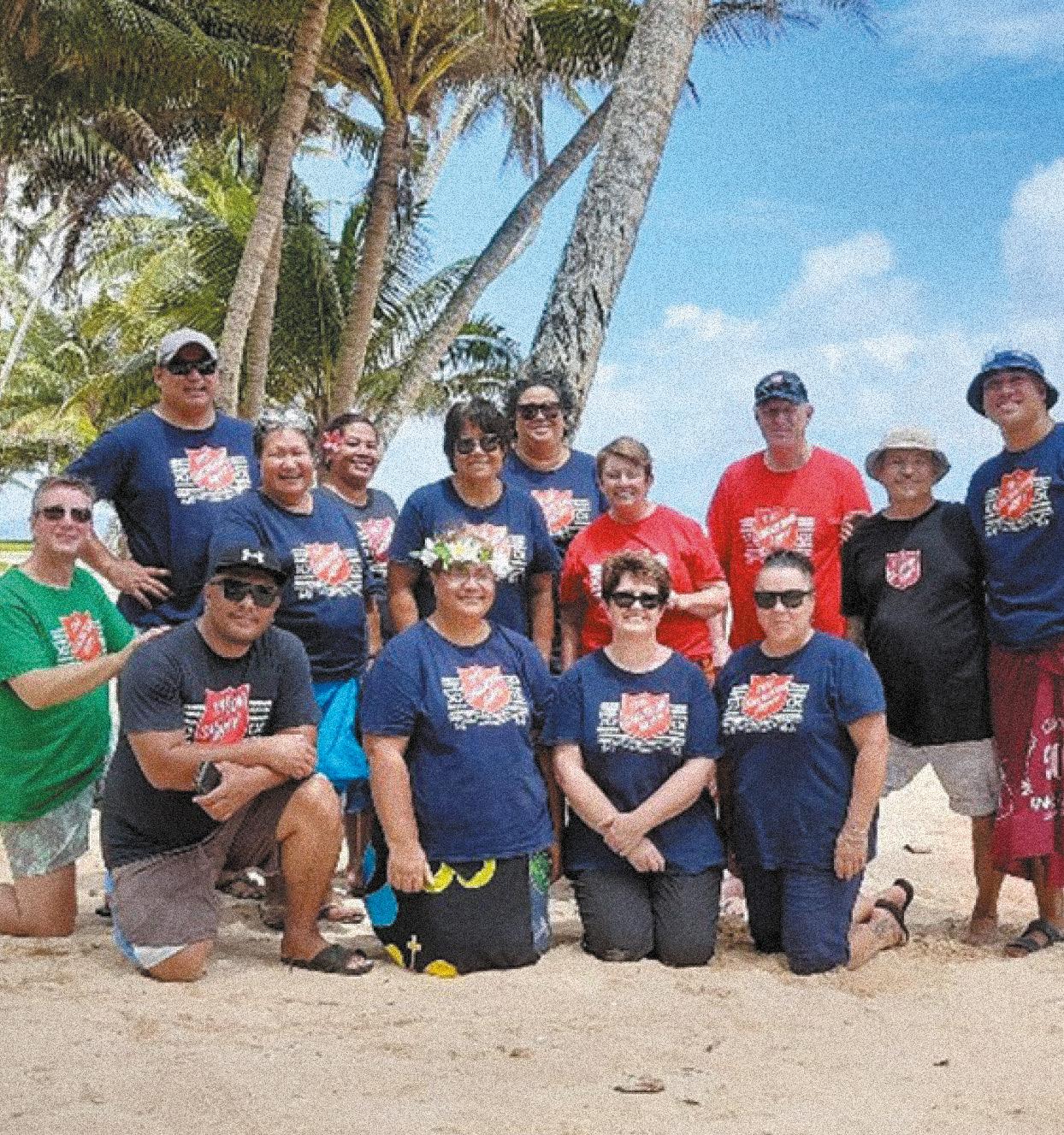
A Samoan worldview identifies Atua (God/spirituality), aganu’u (culture) and aiga (family) as life’s essential
elements. Mental wellbeing is about maintaining harmony across physical, emotional, spiritual, cultural and environmental domains, and is evidenced by people fulfilling their respective roles and responsibilities in their family, village and church. Key to Tino and Nat’s clinical practice then is helping people reconnect to these protective factors for wellbeing.
‘We consider these three factors in every treatment we provide because time and again we observe that addiction and mental illness result in a temporary disconnect from one or all of these elements,’ explains Nat. ‘Tino will start with those important cultural considerations and explore what people have disconnected from and then bring a cognitive behavioral therapy (CBT) approach to that. Everything we do is grounded in culture to help make clinical sense for treatment interventions. It’s not one or the other, but a blend—culture is clinical.’
In addition, there are no individuals in Samoan culture—‘I is we,’ says Tino. ‘Every Samoan defers to their elders. I could be 48 and still need to listen to my older brother. If someone younger than me suggests I have a problem, they are crossing into va (sacred space). These are all important cultural considerations when providing effective treatment.’
‘I is we’ can be a strongly protective factor, but can also result in shame and stigma, preventing people from seeking help. And this is where the Soalaupule Series comes in, because every Samoan knows that ‘soalaupule’ means the sharing of pule (authority).

Soalaupule Series success
‘Soalaupule refers to a cultural process where everyone has the right to contribute and give their opinion about a family or village matter. This often happens
From top: Team Samoa; Commemoration of World Mental Health Day in Samoa.
22 June 2023
‘With many Samoans now spread across the world, disconnection from protective cultural factors is very real.’
as part of a family talanoa (talk) or village fono (meeting), with the goal being for the matter at hand to have a peaceful outcome,’ explains Tino.
With many Samoans now spread across the world, disconnection from protective cultural factors is very real. A collaboration of like-minded organisations from America, American Samoa, New Zealand and Samoa use the Soalaupule Series virtual space for conversations about mental health and addiction within Samoan communities.
‘The series is important,’ says Nat, ‘because it is about va, which allows for people to talanoa, connect and collaborate. Soalaupule creates the opportunity for both professionals and the Samoan communities we serve to get to know each other and hear what is important to people for their health and wellbeing. There’s space to learn about the service providers— who we are, what we do and how we can help. For some Samoans living away from the motherland, the impact of acculturation can conflict with traditional cultural protocols, values and beliefs, which can impact mental health and wellbeing. Soalaupule provides a space for us to talanoa about such matters, share our experiences and generate solutions together.’
Tino observes that some Samoans have been ‘functioning in the dysfunction’ for generations, mistaking learnt behaviour as cultural. ‘Sexual abuse and family violence are not part of our culture, but somehow these dysfunctions have become normal, but they are not part of Samoan culture—no way! This is an error for us as a people and we have to be willing to put our hand up and say I want to be a champion of change for the sake of our children. And this is the nature of some of the things we talk about in the Soalaupule Series,’ explains Tino.
Anonymous Client Stories
‘The programme has helped me not only with the physiological side but also my spiritual side, and there has been heaps of change with relationships not only in my family but also my village. Everything about this programme is holistic.’
‘It’s been important learning to break bad cycles set by those who came before us. It’s time to change that cycle so that bad habits don’t continue. CBT was another thing for me—learning that our thoughts are what lead to our negative behaviour, and that we can fix problems while they are still thoughts—before they show through in our behaviour.’
Taking place monthly and hosted by one of the member organisations, topics of specialty are presented, with Tino and Nat recently sharing on the topic: ‘Culture is Clinical’, which is available to watch at tinyurl.com/SamoaClinical
Witness to wellness
Tino and Nat affirm that relapse can be a natural part of recovery and that a person’s journey is unique. ‘There are no coincidences, everything is purposeful and part of God’s plan,’ says Nat. ‘It’s a privilege to witness the strength, faith, courage and hope that are experienced on the journey to recovery and wellbeing, through reconnecting people back to their known protective factors of aiga, aganu’u and Atua.’
Thinking about a career in mental health and/or addiction work with Pasifika people?
Tino and Nat recommend contacting Le Va—Pasifika Mental Health and Addiction Workforce Development to discuss options, which may include WelTec’s Bachelor of Counselling and Addiction Practice or the University of Auckland’s Post Graduate Certificate in Health Sciences—Alcohol and Drug Studies.
saltmagazine.org.nz 23
Undone
WORDS Jules Badger | ART Sam Coates
Similar features stretched across the chasm of years
A generation of separation, a masterful re-creation
An intentional tear in the space-time continuum
A careful filtering of flesh, a divine dance of dilution
Shaping the essence of the father into someone new
And yet…
The son is not a clone honed into sameness
He cannot simply be a copy
He must be himself no matter how much he loves his father
And so, the son sheds the father’s skin
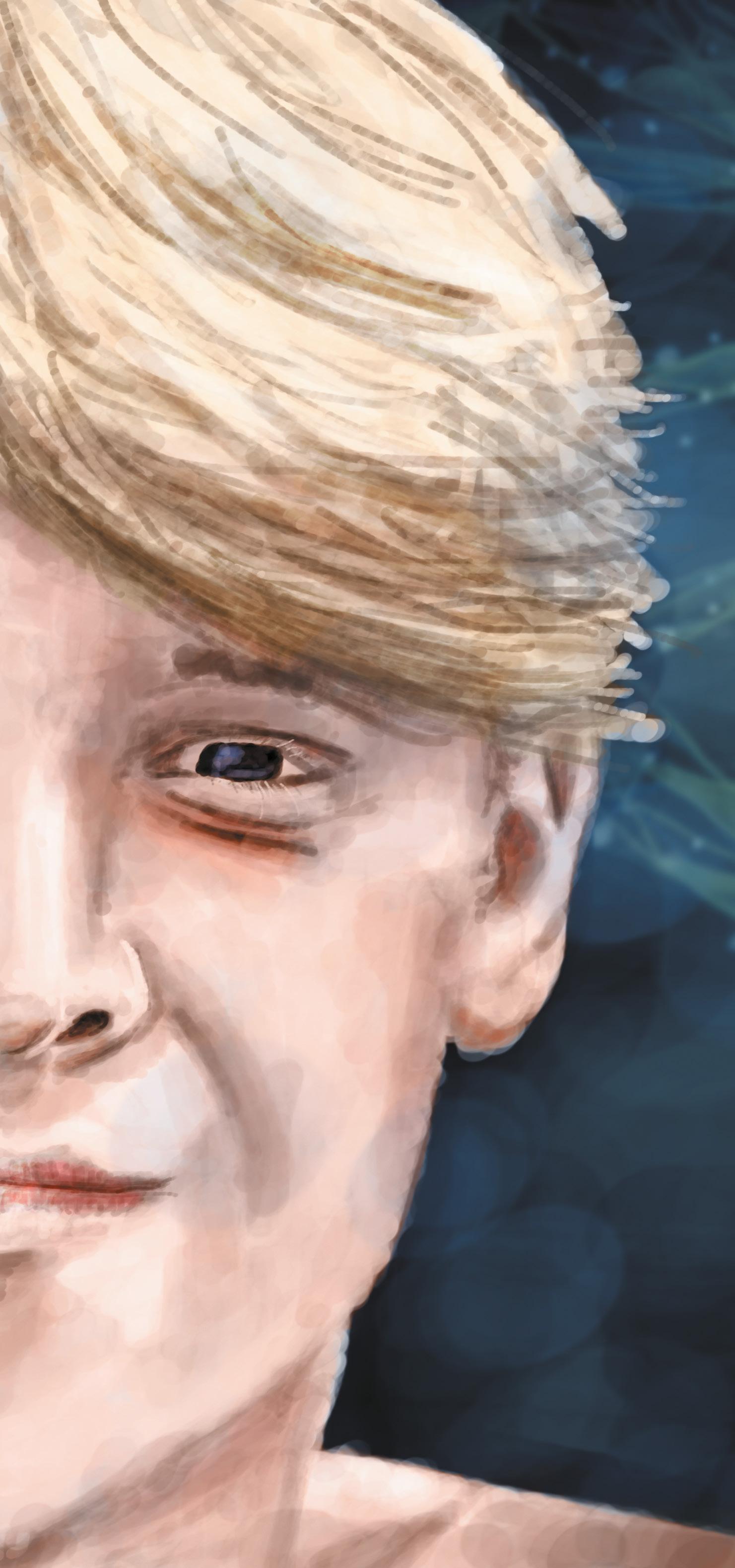
Not a rejection of him, but a specific selection
Of what he wants to claim, over what cannot remain
But it’s the father who takes the strain
Embracing the pain of the loss of his little boy
Welcoming this strange and unfamiliar young man
Loving this new creation
All the while knowing that one day his turn will come
And he too will be left undone
As is every father who loves his growing son.
I wrote this poem when my son suddenly grew up and started to become his own person—no longer a child but becoming a man, much to the discomfort but eventual joy of both myself and his father.
24 June 2023
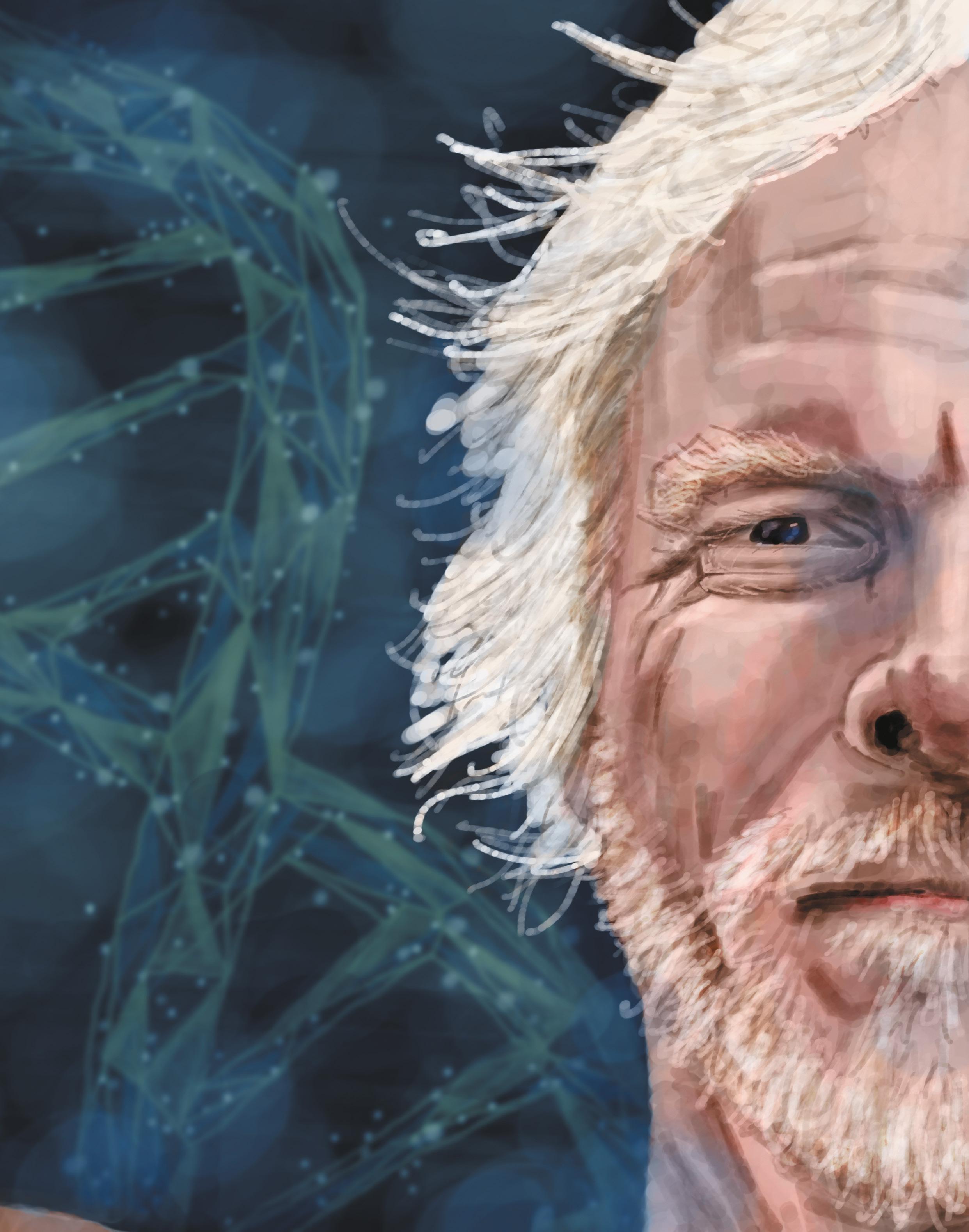
Lost, Found and the Spaces Between
We often use metaphors from Scripture to help describe our journeys of faith, such as the straight road, narrow path, mountain height, deep valley, harsh wilderness and barren desert. There is a sense of significance within each of these, giving shape to the ever-changing path that we are on. Captain Rachel Montgomery considers this experience of being lost (lostness) and being found (foundness) as part of our spiritual formation.
I’ve been on many bush walks through New Zealand forests, but one in particular that I did with my family on Mount Taranaki left a lasting impression.
It was a beautiful day, crisp and clear, perfect for outdoor adventure. Like many mountainous walking tracks, the pathway commenced open and inviting. The path was clearly marked and there was a sense of confidence as we began our journey.
It was not too long before the track became more narrow and harder to distinguish. The canopy began to cover in and the air became moist. Difficulties arose as obstacles covered the track and we began to negotiate our way around the path in order to press on. I helped lift my children over logs, across streams, to alternate ways to finish the walk. It became disorienting. Were we even any longer on the track?
Lost and disoriented
In the Old Testament disorientation is a familiar part of the story of God’s people: from the wilderness of Canaan and Abraham wandering with his family living in tents, to slaves in a foreign country, then liberated
and then captured and exiled to Babylon. Eventually, they are partially restored, although they are still under oppression. The people of God knew this feeling of disorientation and they longed for a place to call home.
The New Testament disciples also knew this state of disorientation. They had an expectation that Christ would overthrow the Roman Empire and then all their hopes and dreams would be realised, only to have Christ crucified.
unrecoverable, but rather as someone who can be sought out and found. There is constant noise around us, which can be deafening and we can easily fail to hear Jesus’ voice calling us, leading us out of our lostness. Sometimes we are distracted and bombarded with information, opinion and busyness. We can miss a crucial turn in the track before us. At times with all the trauma around us—the worry, uncertainty, anxiety— we become overwhelmed and look to the wrong things for peace and comfort. We are presented with many options, and we fail to discern the right path correctly.
We too live in times when disorientation can become our constant companion, and we often struggle to articulate this feeling. Jesus chose to describe those who don’t yet know him as ‘lost’. He doesn’t use this word as something that is
Found and reoriented
We can find illustrations in Scripture of lostness, such as when Jesus spoke of the lost sheep, lost coin or lost son (Luke 15:1–32). These all point to something or someone who
26 June 2023
It can be deeply encouraging to know that other disciples of Jesus have been where we stand, and others will come after us.
was recoverable. What joy there is when people who are lost are then found! Jesus is seeking all of us, all of the time.
To be people who are found in God is to be lifted out of disorientation. Jesus invites us into the family to share in the inheritance and to become part of his incredible story. A story of pain, suffering and lostness; but also of acceptance, redemption, joy, grace and love.
Jesus helps us to make sense of the landscape on the path journeyed with him. It can be deeply encouraging to know that other disciples of Jesus have been where we stand, and others will come after us.
The spaces between
Our hope is anchored in the future promises of God (Hebrews 6:13–20), but we still have to acknowledge that
we live in a world of disorientation. We move repeatedly from being lost to found throughout our lives. Few people are brave enough to show others how incomplete and in-progress their journey is. We all face hard times of pain, darkness, suffering, regret, shame and fear (to name a few), which is the reality of the world we live in. It’s unhelpful to pretend that these things don’t exist. They are the scriptural metaphors of the landscape we walk.
We need to move toward a shared language of being lost and found. A language where Jesus helps us through, rather than around our disorientation, as the one who empathises with our weakness. ‘For we do not have a high priest who is unable to empathise with our weaknesses, but we have one who has been tempted in every way, just
as we are—yet he did not sin. Let us then approach God’s throne of grace with confidence, so that we may receive mercy and find grace to help us in our time of need,’ (Hebrews 4:15–16). We will have far more grace for the unfinished and unredeemed parts of our lives and others’ lives if we understand the continual work of God moving us from disorientation towards reorientation. Experiencing both the mountain heights and the deep valleys help us to discover who we are as people of God.
Allowing people to see us as we truly are is possibly one of the hardest things to do. Taking down the façade, the walls that we built around us, and sharing vulnerably and honestly will move us towards more of a true mirror of Christ in our world. ‘For now we see only a reflection as in a mirror; then we shall see face to face. Now I know in part; then I shall know fully, even as I am fully known’ (1 Corinthians 13:12).
Jesus continues to seek all of us, all of the time. As the people of God, we seek to find our place in the continuing work of redeeming and restoring the world, as we show the way to Jesus.
To explore this idea of disorientation to reorientation in more depth, read Twenty-One Elephants: Leaving Religion for the Reckless Way of Jesus, by Scottie Reeve.
saltmagazine.org.nz 27
We too live in times when disorientation can become our constant companion and we often struggle to articulate this feeling.
Zonal Leaders Review Territory
Commissioners Robyn and Wayne Maxwell, International Headquarters, are the zonal leaders for South Pacific East Asia Zone (SPEAZ). Recently they visited our territory to conduct a review. Jules Badger caught up with the Maxwells and asked them about their work within the zone.

Internationally, The Salvation Army New Zealand, Fiji, Tonga and Samoa Territory is part of the South Pacific East Asia Zone (SPEAZ), which extends from Korea in the north to New Zealand in the south. SPEAZ includes nine territories and one region but 20 countries—with our territory making up four of those countries.
The Maxwells’ role is to provide missional and pastoral support, as well as advocacy and resourcing for individual territories.
‘It was explained to us when we came into the role that the Zonal Office is like the hinge on the door between the General [leader of The Salvation Army internationally] and the territories,’ says Robyn.
‘A report on our visit is shared at the General’s Council,’ explains Wayne.
Focused listening
Zonal leaders carry out reviews, and so they were recently in our territory, meeting with leaders and conducting focus groups. Territorial reviews take place approximately every three years. This year the impetus was on mission impact, spiritual health, strategic direction, and the implementation of the governance process still relatively new around the Army world.
Some focus groups take place online, but most are in person. ‘We stress with focus group participants that their identity remains confidential, and we ask that they also respect that for each other—that’s agreed to at the outset,’ explains Wayne.
‘Rather than sitting in a board room listening to department heads present,
we meet with and listen to those on the frontline—officers, local officers, employees, women in leadership, young people and also clients,’ says Robyn. Themes emerge which are then shared with leadership, providing objective information about what is happening around the territory and what can be improved.
During the Maxwells’ visit, they also travelled to Tonga and took part in a youth rally and a combined regional meeting.
Finance, growth and the Ring of Fire
The challenges facing SPEAZ are as varied as the 20 countries it comprises. However, finance stands out—especially for places like Papua New Guinea where
28 June 2023
the Army is growing, but raising funds locally is extremely difficult.
‘Myanmar is funded by Singapore for the same reason,’ explains Wayne. ‘And of course, it’s a country at war which brings numerous and complex challenges. Salvationists in Myanmar live day-to-day, every day.’
Another key challenge facing the zone is the small number of cadets entering training for officership. However, as Wayne explains, in Indonesia the opposite is true; they have 50,000 soldiers. And despite being a Muslim country, The Salvation Army is growing and thriving in Indonesia.

‘They have a training college at full capacity with 75 cadets,’ explains Wayne. ‘In fact, the situation in Indonesia is such that once officers have learnt a particular language, they may well be sending officers to reinforce leadership in the very countries that once sent missionaries to them.’
The zone is also situated in what is known as the Ring of Fire, meaning
that 80 percent of natural disasters happen in our zone. ‘At any given time, there is a natural disaster happening in the Pacific,’ explains Robyn. ‘Disasters are rampant— earthquakes, volcanic eruptions and floods. Out of the 20 countries most affected, eight are in our zone.’
‘It is often heartbreaking for us, but also inspiring,’ says Wayne. ‘We’ve been to an officer’s quarters where a flood had just come through for the second time that year. When we asked the officer what she needed—knowing she was sleeping on a bamboo pallet and had no electrical appliances, she’d lost everything—she said, “I have everything I need”.’
Temperature rising
Both Robyn and Wayne agree that the spiritual temperature and growth within the zone is highest in places facing hardship and extreme challenges.
‘In the Philippines, when the people are hungry, they pray; if they are sick, they pray. We would go to the supermarket or the doctor. Prayer is not always our first response because it doesn’t have to be. So, the very first thing you notice is their strong faith and dependence on God,’ says Robyn.
‘We recently shared online with a local officer from Myanmar, where
every day is a struggle for food and finance. But she assured us that her people are spiritually strong. During Covid-19, Myanmar enrolled 260 soldiers. One place lost their hall, it burnt down in the fighting, so they moved into the forest and set up their flag. It’s heart wrenching, but just imagine if we could bottle that passion for God and give it to us in Australia and New Zealand.’
Leaders of the future
Within the zone, investment in the development of national and indigenous leaders is being given priority. ‘We haven’t always done this well in the past—preparing leaders to take on the responsibility of their own country or territory. We are now making plans to remedy this by strategically preparing and equipping local leaders for future senior leadership,’ explains Wayne.
‘Singapore currently has national leadership for the first time in its history, and Papua New Guinea has its first female married chief secretary,’ reports Robyn. ‘We are fully supportive of raising up national leaders, while remembering we are an international Army and still have lots to offer and learn from one another.’
The challenges facing SPEAZ are as varied as the 20 countries it comprises.
The zone is also situated in what is known as the Ring of Fire, meaning that 80 percent of natural disasters happen in our zone.
saltmagazine.org.nz 29
Left: Commissioners Robyn and Wayne Maxwell (centre) with the Territorial Governance Board and senior leaders of The Salvation Army New Zealand, Fiji, Tonga and Samoa Territory.
Newtown Fire Response
Salvation Army Emergency Services deployed quickly to support people displaced by a fatal fire at a Wellington hostel on 16 May. At least six people reportedly died in the blaze at Loafers Lodge in the Wellington suburb of Newtown, which provided temporary and longer-term accommodation to more than 90 people. An on-site Salvation Army team provided a range of support including psychosocial assistance and sausages from a mobile BBQ, while staff at The Salvation Army’s Newtown Centre offered additional help and support to the local community.
For the full story, go to saltmagazine.org.nz
Anzac Day Commemorations Across Our Communities
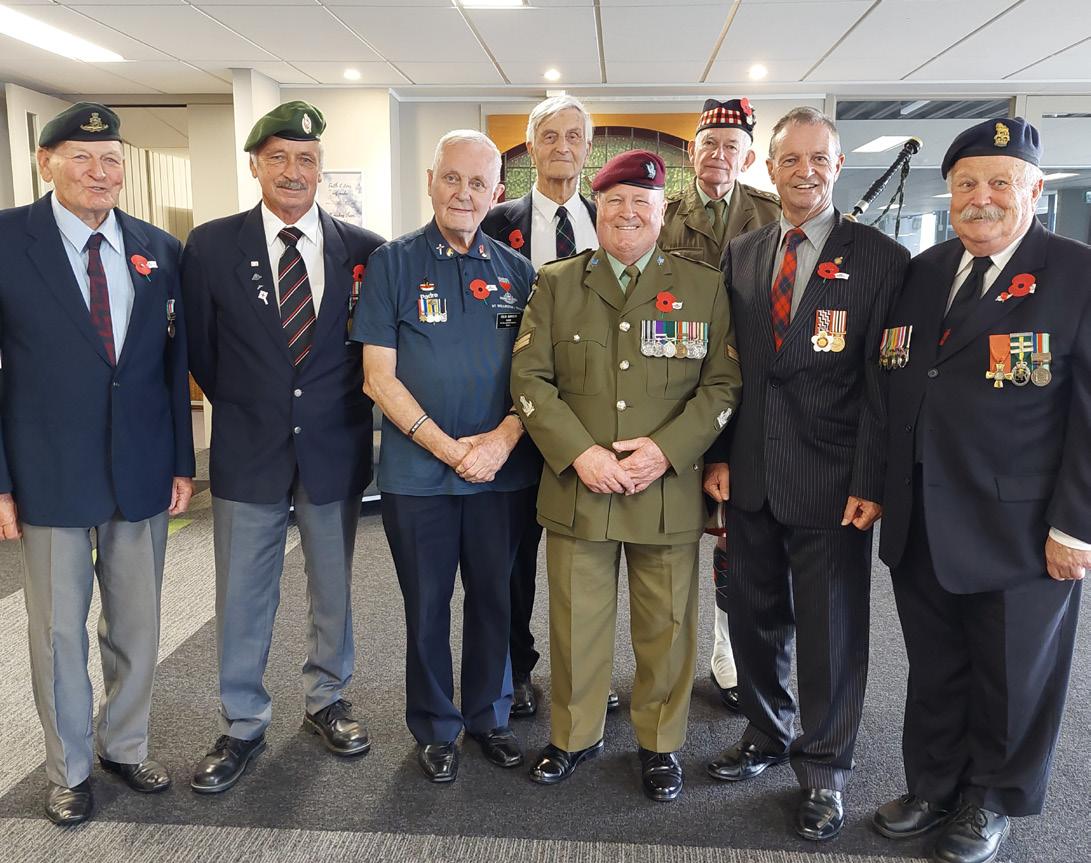
Anzac Day commemoration is an important part of New Zealand’s history and The Salvation Army has always been involved in the annual gatherings. Many corps across New Zealand’s four divisions organised Anzac services or were involved in community services this year. Auckland City, Hamilton City, Johnsonville and Ōamaru Corps share with our readers their Anzac Day observances.
For the full story, go to saltmagazine.org.nz
Petone Playscape’s Second Birthday

The Petone Playscape team celebrated the second birthday of Te Kōhanga Manaaki with cake, music and fun activities, marking two years since its grand opening in May 2021. The party joined families in celebration of the space, with decorations, arts and crafts, a sausage sizzle, coffee cart and other outdoor activities.
For the full story, go to saltmagazine.org.nz
BMAC Autumn Kids Peak
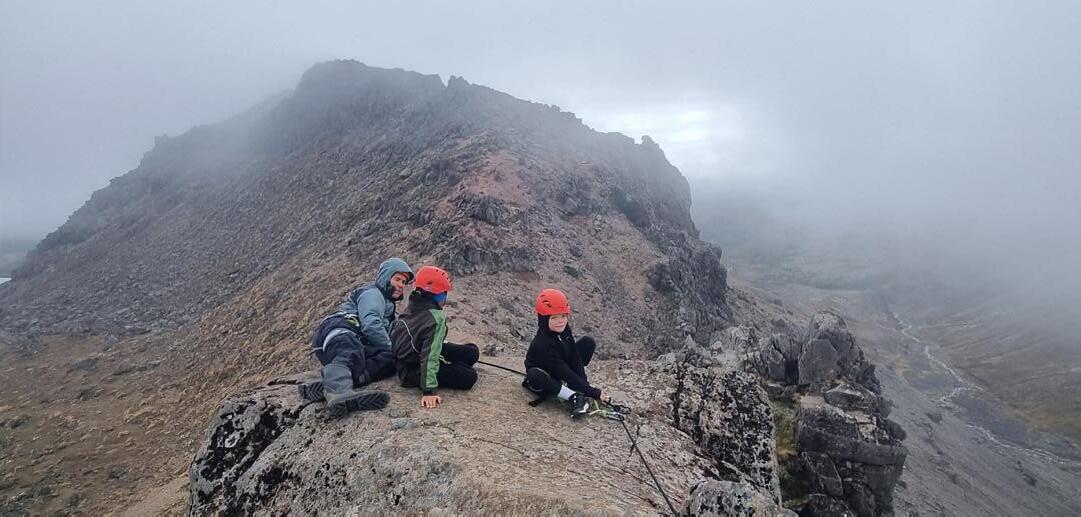
Blue Mountain Adventure Centre (BMAC) recently held their Autumn Peak for children aged 8 to 13 years. Epic activities included caving, high ropes, rafting, hot pools, traversing a mountain ridge, rock-climbing, bush walking and more. Evening activities included campfires, games, a Burma trail, movie night, creative dinner and performance night, along with values-based teachings. Autumn Peak is one of seven outreach camps that BMAC runs each year.
For the full story, go to saltmagazine.org.nz
30 June 2023
Dunedin Social Housing Project Milestone

Planned Salvation Army social housing in Dunedin has reached a significant development milestone with the local council having granted building consent in the past month. The 30 apartments are to be constructed on a floor of a mixed-use heritage building that will also house market-rate apartments on the upper floors and commercial users on the ground floor. The social housing development will consist of 28 one-bedroom units, along with one two-bedroom unit and one three-bedroom unit.
For the full story, go to saltmagazine.org.nz
New Pea Kindergarten in Tonga

The Pea Kindergarten is the latest addition to the ongoing community ministry to children in Tonga. The kindergarten is located on the King of Tonga’s land made available by the Queen, who is a great supporter of the Army and its work with early childhood education. The Pea Kindergarten has been renovated and sponsorship funds have been used to fund equipment to ensure children have all they need to learn.
For the full story, go to saltmagazine.org.nz
Floods and Cyclone Response in Recovery Phase
The Salvation Army’s response to the severe weather events in New Zealand earlier this year has moved from an immediate emergency mode to a longerterm recovery phase. The provision of food parcels continues to be an important part of the overall response; for example, a shipment of 400 food parcels was sent to Gisborne in recent weeks for distribution throughout the region.
For the full story, go to saltmagazine.org.nz
Red Shield Street Appeal
The 2023 Red Shield Street Appeal week collectors endured rough weather this year, but with smiles on their faces, all for raising funds for Community Ministries centres across New Zealand. National Red Shield Street Appeal Manager Kay Worth was thankful to everyone who volunteered their time during appeal week. Mosgiel was the first corps to reach their target during the week.
For the full story, go to saltmagazine.org.nz

Looking for more news? Read the latest news online at saltmagazine.org.nz saltmagazine.org.nz 31
Official Engagements
Commissioners Mark (Territorial Commander) and Julie Campbell (Territorial President of Women’s Ministries)
20 June: Five Year Officer Review—afternoon tea, Leader to Leader Forum and dinner
22–25 June: Visit to Midland Division
Colonel Gerry Walker (Chief Secretary)
12–13 June: SLT Strategic Awareness visit, Southern Division
20 June: Five Year Officer Review—afternoon tea, Leader to Leader Forum and dinner
21 June: Spiritual Day, School for Officer Training, Fiji
Lt-Colonel Liz Gainsford (Territorial Secretary for Spiritual Life Development)
20 June: Five Year Officer Review—afternoon tea, Leader to Leader Forum and dinner

21 June: Spiritual Day, School for Officer Training, Fiji


Gazette Summary
To read the full version of Gazette notices, visit saltmagazine.org.nz/gazette
Marriage: We congratulate Major Ann Brunskill on her marriage to Ron Moore (from Otahuhu Corps) on Saturday 29 April 2023 in Thames. We wish Major Ann and Ron all the best for their future together and pray God’s blessing on them.
First Time Grandparents: Congratulations to Majors Allan and Linda Bateman on the safe arrival of their first grandchild, Dorian Kenneth Rundle, born on 24 April 2023, weighing 7lb 10oz (3.45kg).
International Appointment: Effective 1 June 2023: Lt-Colonels
Alberth and Elsi Sarimin, officers currently serving in the Indonesia Territory, are appointed to serve in the New Zealand, Fiji, Tonga and Samoa Territory as assistant chief secretary and assistant territorial secretary for Personnel (Resources) respectively.

International Service Appointment: Effective 3 June 2023: Major Nigel Luscombe has been appointed as territorial financial secretary (pro tem—on secondment) in Papua New Guinea and Solomon Islands Territory. Major Luscombe will share his time based between Papua New Guinea and New Zealand in this appointment.
Promotion to Glory: Captain David Thomas was promoted to Glory on Monday 15 May 2023, from Savusavu Hospital, Fiji, aged 85 years. David and Mariama Thomas entered the Training College in Suva, Fiji, from Raiwai Corps as cadets in the Guardians of Truth session in 1984. Please uphold Captain David Thomas’ family and the Savusavu Corps members in prayer at this time of grief and loss.
50 years of The Salvation Army in Fiji 1973–2023
MARCHING ON: 50 Years Strong Founded on Faith; Inspired by Hope; Serving with Love
For more information and to confirm your attendance, please contact:
Major Iliesa Cola or Captain Beth Campkin
fiji.dhq@salvationarmy.org.fj
Please join us for our online Praying Together meetings—7:00pm NZDT
Tuesday 13 June
Wednesday 14 June
Thursday 15 June
For all resources and to log in to the online meetings, visit salvationarmy.org.nz/praying-together
Quiz Answers: 1. St Edward’s Crown, 2. 118, 3. Nike, 4. Brazil, 5. Sumo Wrestling.
32 June 2023
SALVATIONISTS IN HISTORY
Spreading the Good News for 140 Years
The Salvation Army has a rich and varied history which is preserved at the Heritage and Archives Centre (Plowman Resource Centre). This article looks at how our territorial magazine has changed over 140 years, from the very first issue in 1883 as The War Cry.

This publication was called, until very recently, War Cry (The War Cry in its origin), for 140 years. The War Cry was a relevant name at the time as military terms were used frequently by Salvationists as spiritual language. For example, the first edition of The War Cry on 16 June 1883, repeatedly used the term ‘open fire’ when referring to preaching the Word of God. The Salvation Army still honours its history, while acknowledging that SALT: Salvation Army Life and Times is appealing to an audience who may be unfamiliar with the military metaphors used throughout Salvation Army history.
In the 16 June 1883 issue, there was a section titled ‘Why do we need a “War Cry?”’ by Captain George Arthur Pollard, which explained its spiritual mission and purpose: ‘To help us publish Salvation. This is our life’s business. We’re Salvation people, saved ourselves, and seeking the Salvation of all around us. We intend filling The War Cry with Salvation news, and that alone’.
The War Cry in 1883 was in a newspaper format, with text spread over four pages and no images. It was always intended to be another form of evangelism or outreach, being sold in different parts of society, such as pubs. Fight the Good Fight: The Story of The Salvation Army in New Zealand 1883–1983 by Cyril R. Bradwell, notes:
The Salvation Army saw great value in keeping its converts busily and happily occupied, but it
believed also in the power of the written word to both evangelise and inform. The New Zealand War Cry, from its first issue on 16 June 1883, set out to cater for all tastes. Lively descriptions of corps activities, articles by William and Catherine Booth, books and other items on sale from the new ‘Trade Department’, news from overseas, features on the careers of outstanding officers and soldiers, challenging articles for the man-inthe-street, songs and poems written by anyone who cared to send them in—these were some of the ingredients which attracted a large readership both inside and outside the Army’s ranks.
The first issue featured varied content: a description of the purpose of publishing The War Cry, the origin story of The Salvation Army, a written sermon by Catherine Booth, corps activities, notices and upcoming events, poetry, international updates and the General’s Address. Although some aspects of the publication are no longer being produced in the same way, testimonies and written sermons, for example, are still an essential part of the magazine and are still published in every edition today.
With the arrival of The Salvation Army in New Zealand, the publishing of The War Cry was an important way to spread the good news of Christ to a wider audience. In an age before instant messaging and information at our fingertips, this publication was also an important way to inform people about what was happening within The Salvation Army in New Zealand and worldwide. Although SALT looks a lot different to the very first issue of The War Cry, the original mission of reaching people for God through storytelling is the same today.
Illustration from The War Cry, 21 April 1888.
saltmagazine.org.nz 33
Decorate Your Own
Afffirmation Cards
These affirmation cards can be used to remind you of God’s truths and your strengths. Decorate them, then cut them out and put them somewhere you can see them each day. For more ideas and to download the full set of cards for free, go to saltmagazine.org.nz/resources.
I am forgiven and can forgive others
Parents and Caregivers are Human Too
As parents and caregivers, it’s easy to fall into the trap of doing and being everything for your children (think of the phrase ‘super mum’). But the truth is that caregivers are human too, and only have so much time and energy. It’s okay to accept that you might forget to do something or make a mistake. Sometimes you might get stressed and lose your temper.
It’s important to teach your children that arguments will happen in a family, but there always needs to be reconciliation to resolve the tension that builds up. Whether it’s you or your child who got mad and said something hurtful, it helps if both of you resolve it together.

Here are some suggestions on how to resolve an argument:
• Wait until you’re calm and apologise if you overreacted or lost your temper.
• Have a chat with your child when you’re both calm to clear the air.
• If your child was in the wrong, they may not apologise straight away, but look out for small gestures, like a hug, helping out or saying goodnight.
• If your child says sorry, ask them to say what they are sorry for.
• Make sure you reassure your child that you love them, even if you haven’t as yet resolved the issue.
When a child sees their parent role modelling the act of apologising and reconciling, they learn it’s something they should be doing too. Don’t fall into the trap of thinking only your child should make amends, because it’s a healthy process for anybody. Children learn so much from what they see, so humble yourself to apologise and say you’ll do better next time.
Source: parentingplace.nz/resources/getting-back-on-track-aftereveryday-upsets
I am God’s masterpiece
I am brave
I greathaveideas
persecutions, in difficulties. For when I am weak, then I am strong.’ 2 Corinthians 12:10
34 June 2023
Read: Our Bible verse was written by Paul the Apostle to the church in Corinth. Paul went through a lot in his life and was in prison many times for his faith. However, despite this, he encouraged the church to be happy in the hard times. He says this is not something we do for ourselves but ‘for Christ’s sake’. He encourages them by saying being weak is a sign of strength.
Think: How can you be strong when you’re weak? Well, Paul wasn’t talking about having big muscles. He was talking about having faith muscles—spiritual strength. Paul knew he had made lots of mistakes in his life and would never stop making mistakes, because he was human. He was weak because of this but he delighted in it. Why? Because God works in us the most when we accept our weaknesses and mistakes and receive spiritual strength from him.
Pray: Pray to God for spiritual strength when you’re feeling weak.
Pray not only for yourself but for others around you, because we all go through hard times and make mistakes.
Pray that God will lift people up in his strength. Pray for God to help you accept your mistakes and learn from them.
Do: Make a list with your weaknesses on one side. Maybe you are not good at sport or you are quick to get mad. On the other side, think about how God can change these into strengths. It doesn’t mean you have to be perfect at all these things now. But think, how can God change my heart towards these things? For example, God can help me to calm down when I’m feeling mad.
ideas
I am chosen and loved
brave saltmagazine.org.nz 35
My mistakes help me learn and grow

When an eggshell is cracked from the outside it is broken, when it’s cracked from the inside it is reborn.
Anon




























































